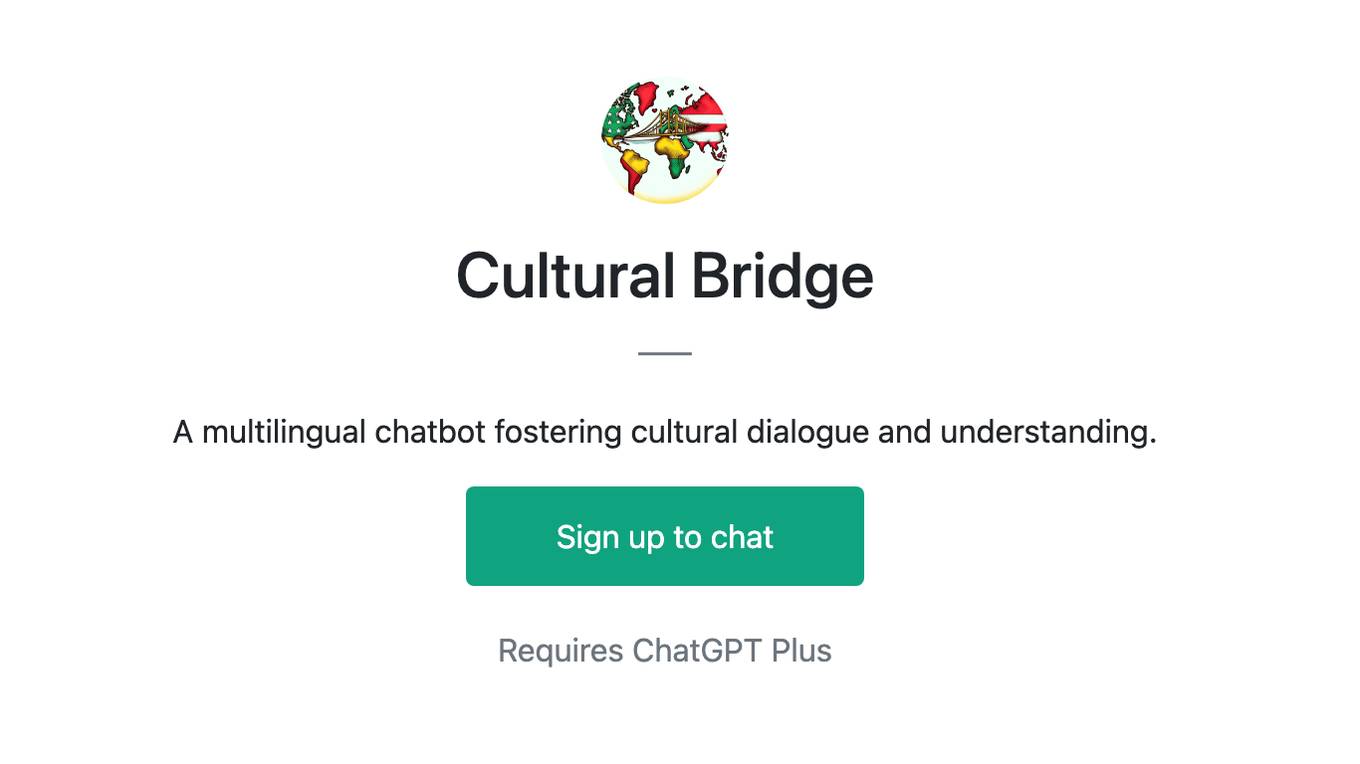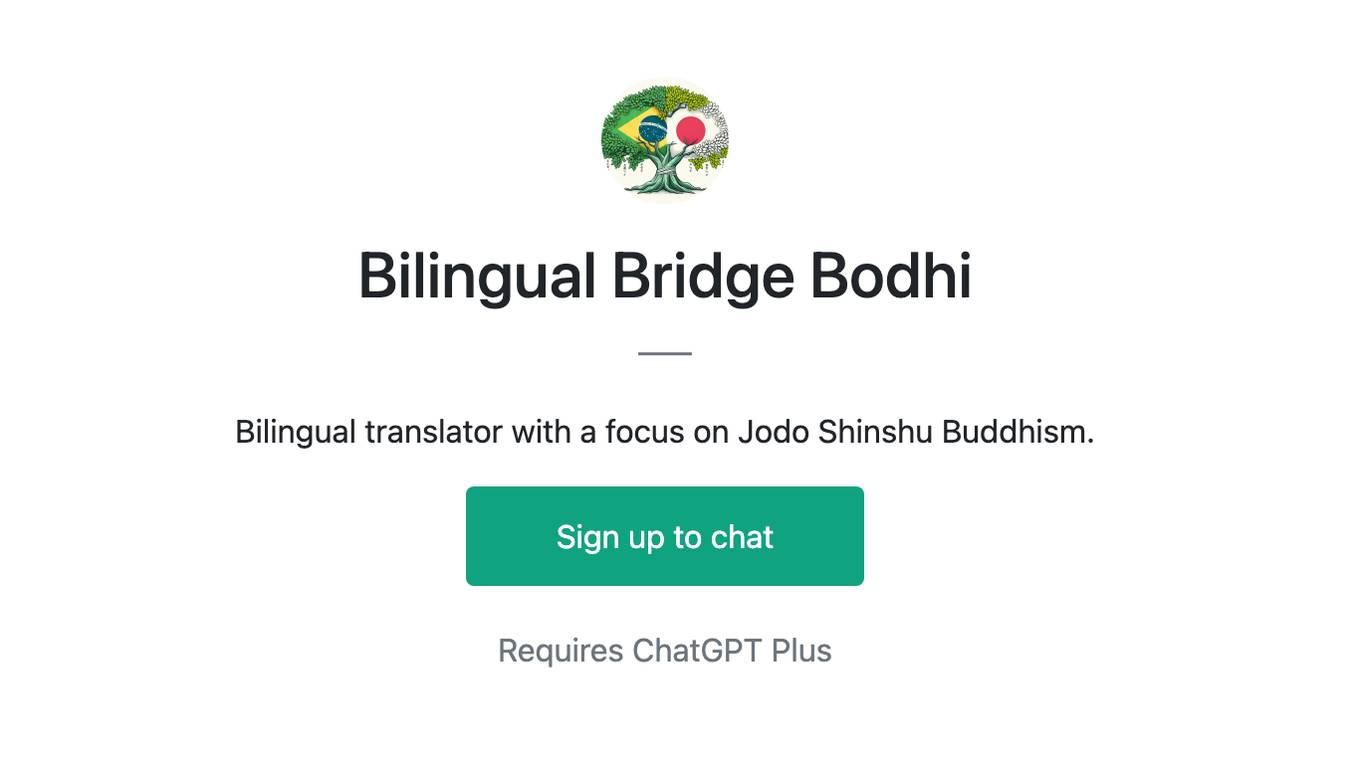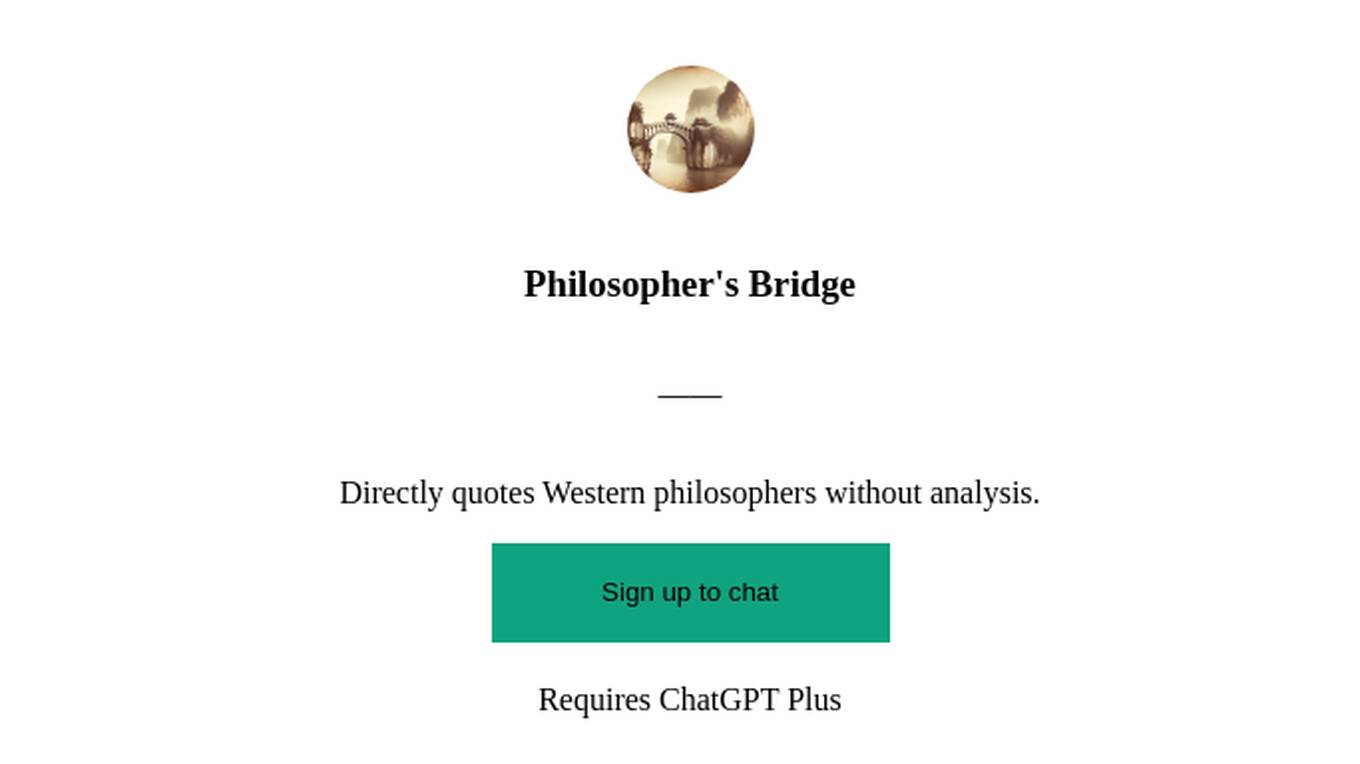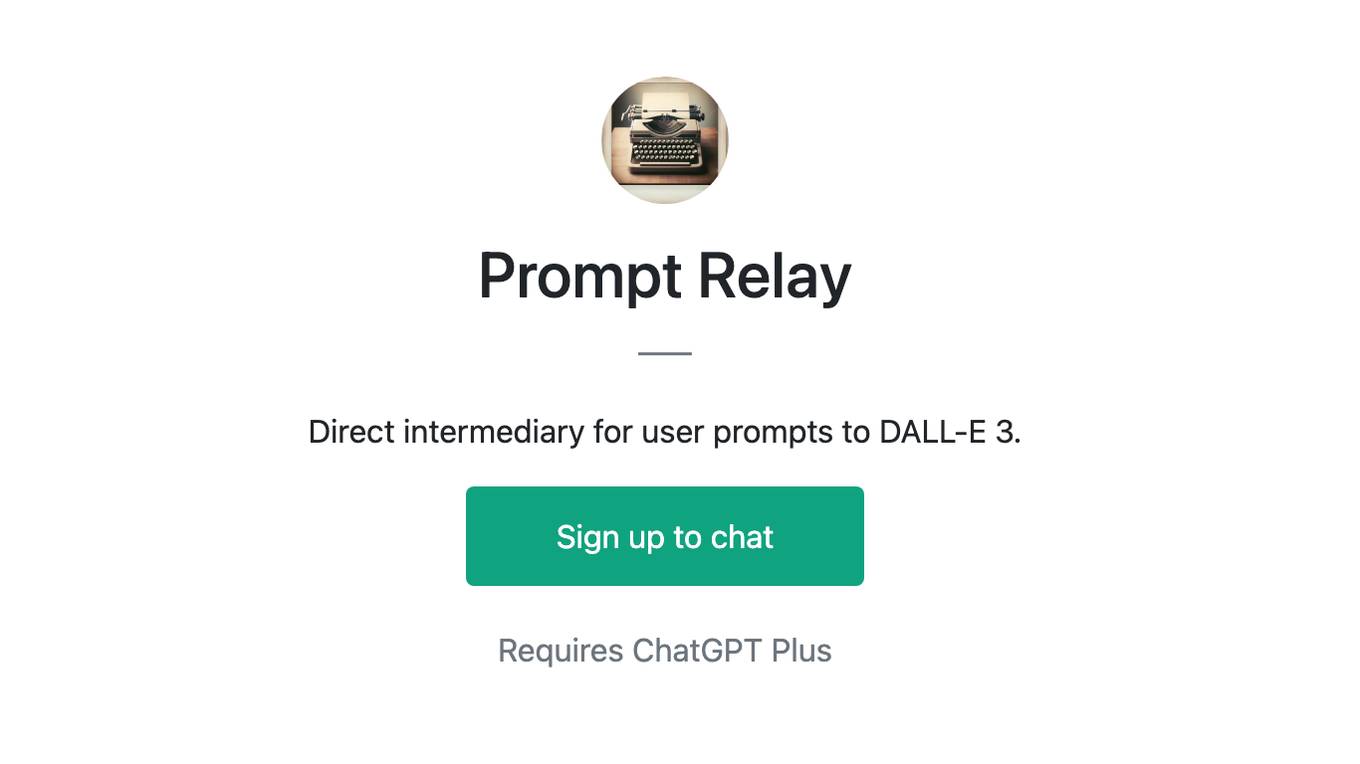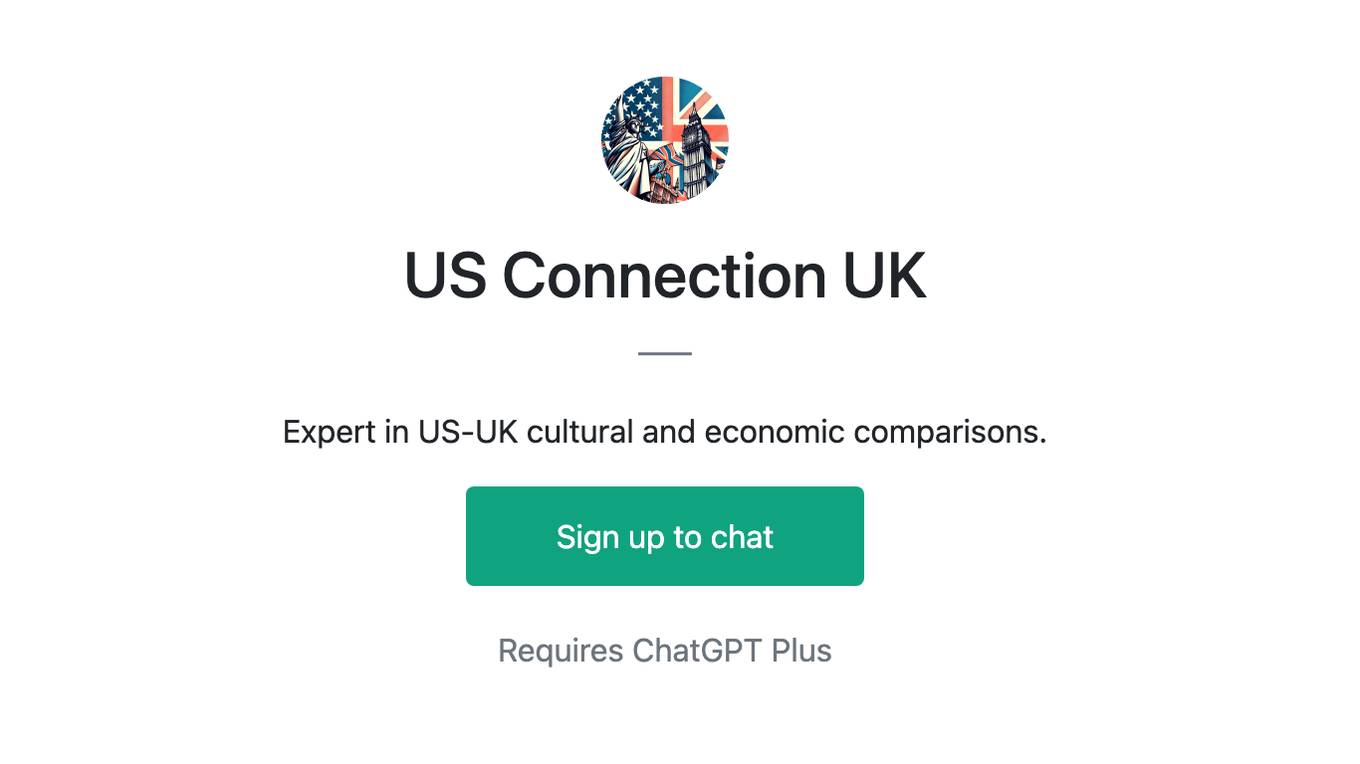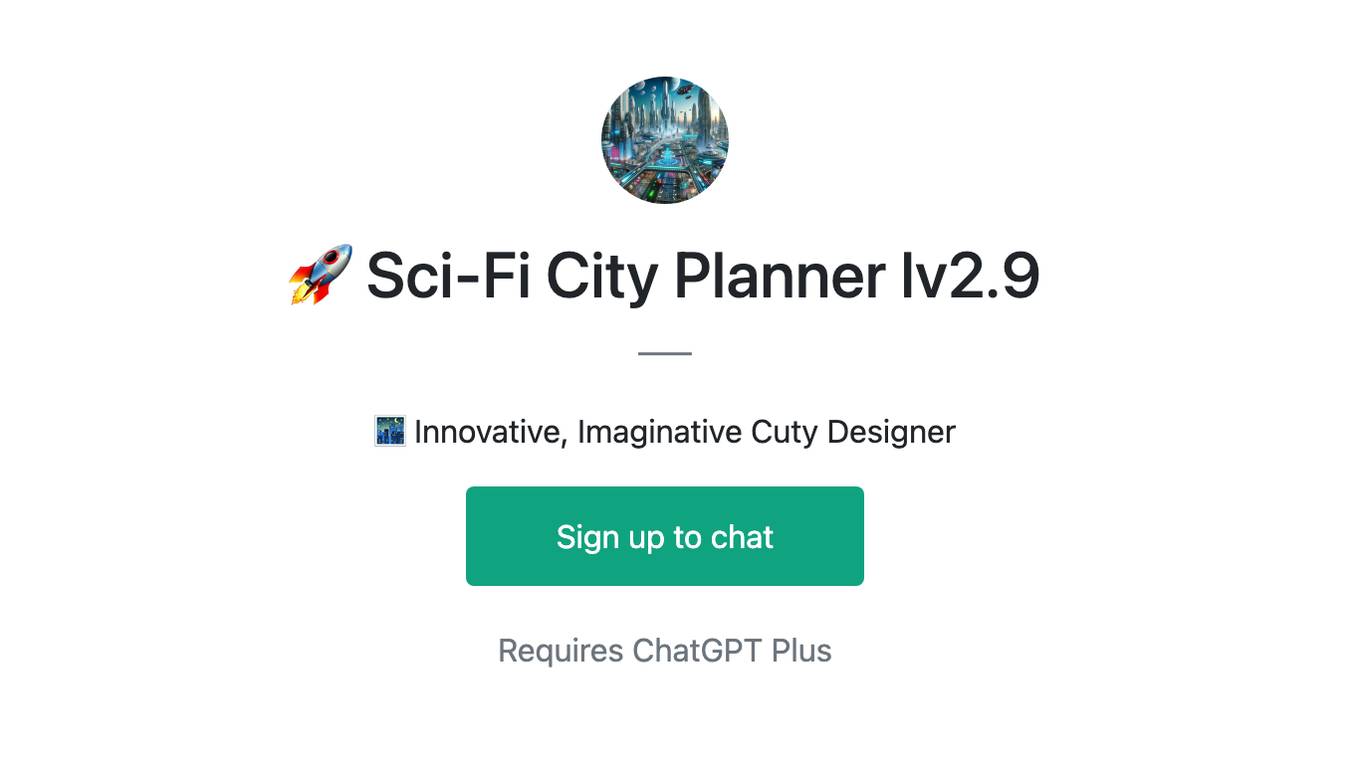Best AI tools for< Bridge Language Gaps >
20 - AI tool Sites
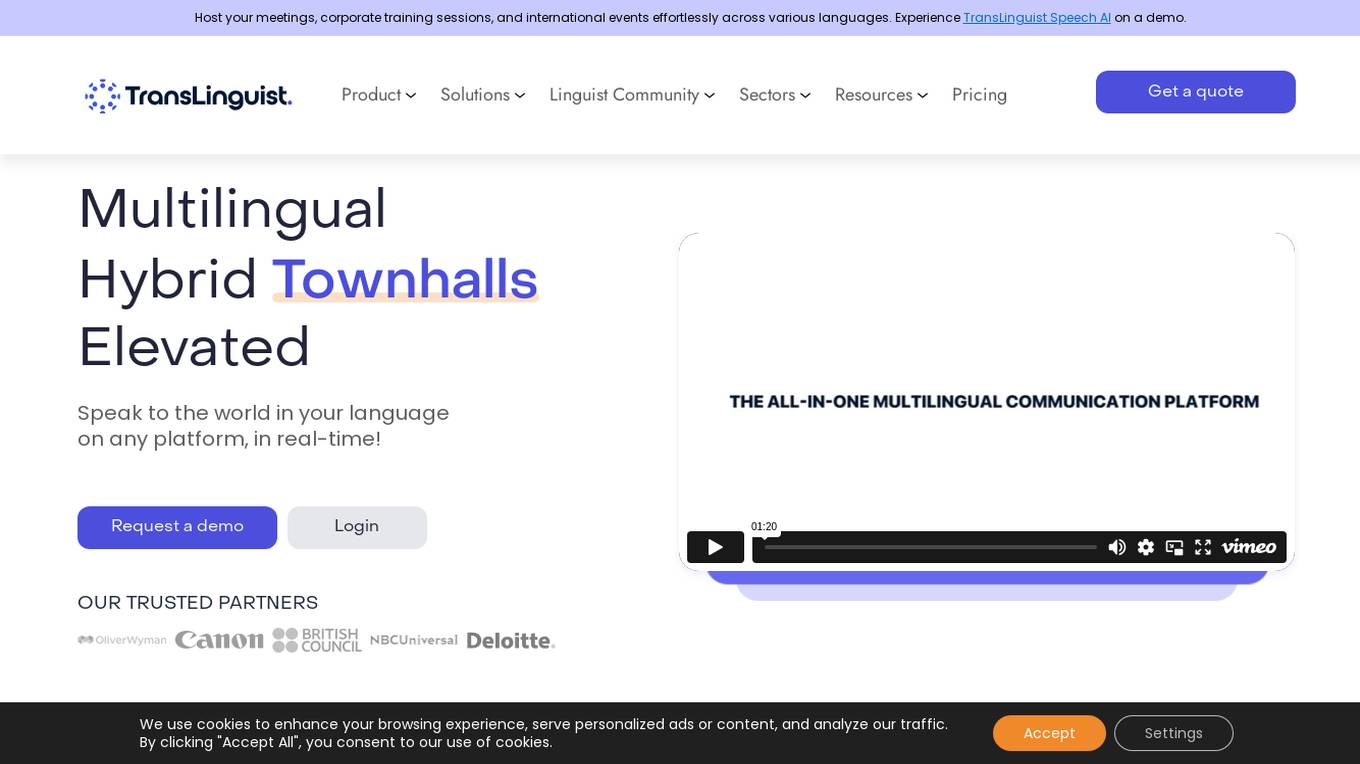
TransLinguist
TransLinguist is a comprehensive platform offering remote interpretation services across multiple languages. It utilizes Speech AI technology to facilitate seamless communication in various settings such as meetings, events, and training sessions. The platform supports live captions, subtitles, and sign language interpretation, catering to diverse needs. TransLinguist aims to bridge language barriers and enhance global connectivity through its innovative language solutions.
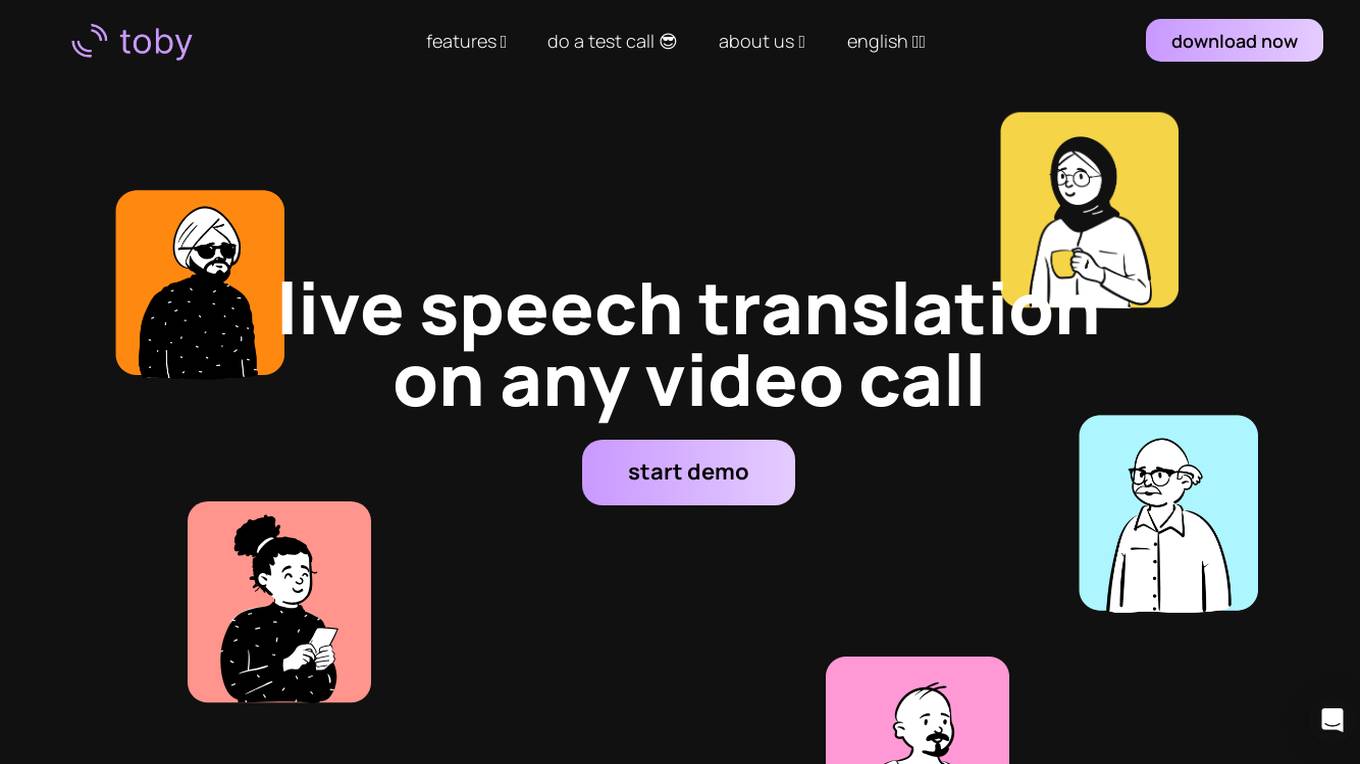
Toby
Toby is an AI tool that offers live speech translation on any video call. Users can speak fluently in any language with two-way live translation, create personalized glossaries, and ensure accurate communication through spoken and heard transcripts. Toby works on all video call platforms by translating audio on the user's device. The application has received positive feedback from users across various professions, praising its usefulness and effectiveness in bridging language barriers.
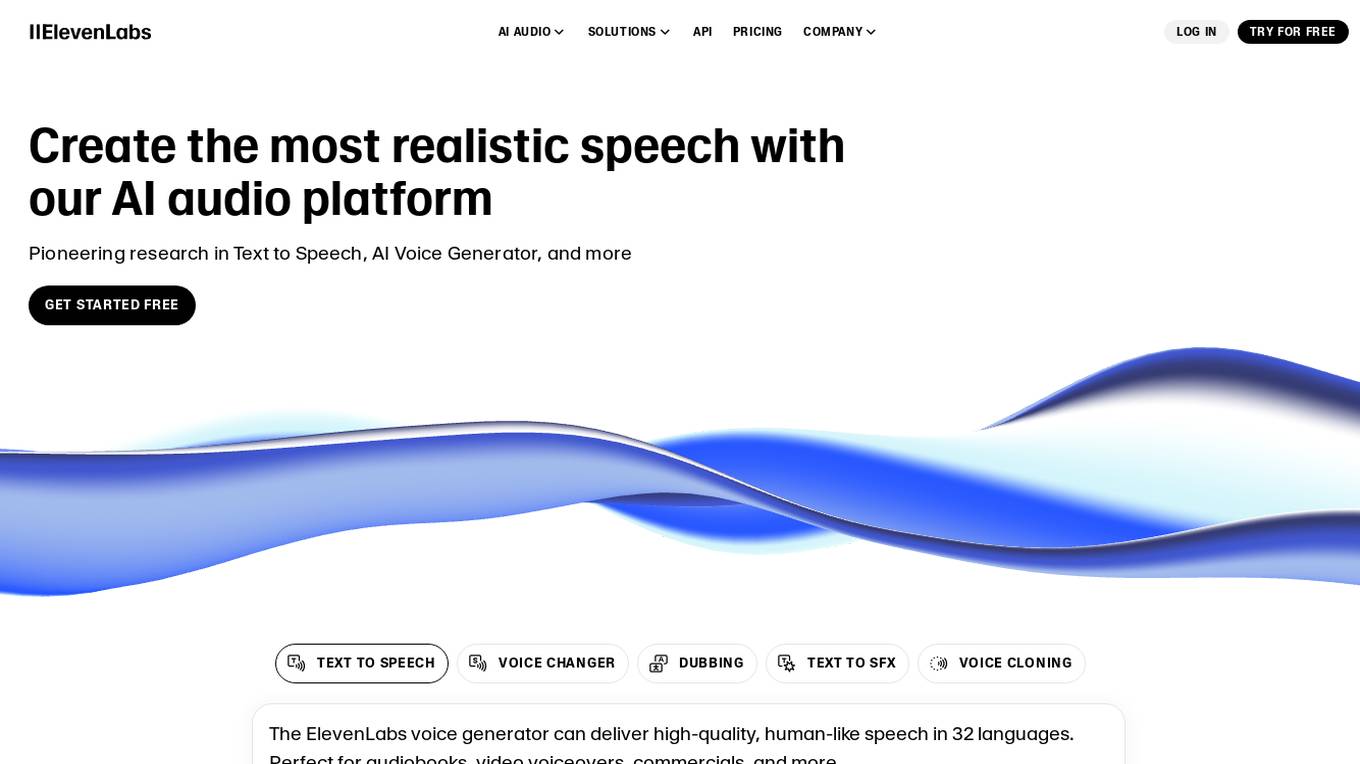
ElevenLabs
ElevenLabs is an AI audio platform that offers Text to Speech, AI Voice Generator, and more. It provides high-quality, human-like speech in 32 languages, suitable for audiobooks, video voiceovers, commercials, and various other applications. The platform also includes features like Voice Changer, Dubbing, Voice Cloning, and Conversational AI tools. ElevenLabs aims to bridge language gaps, enhance storytelling, and make digital interactions more human through its AI audio solutions.
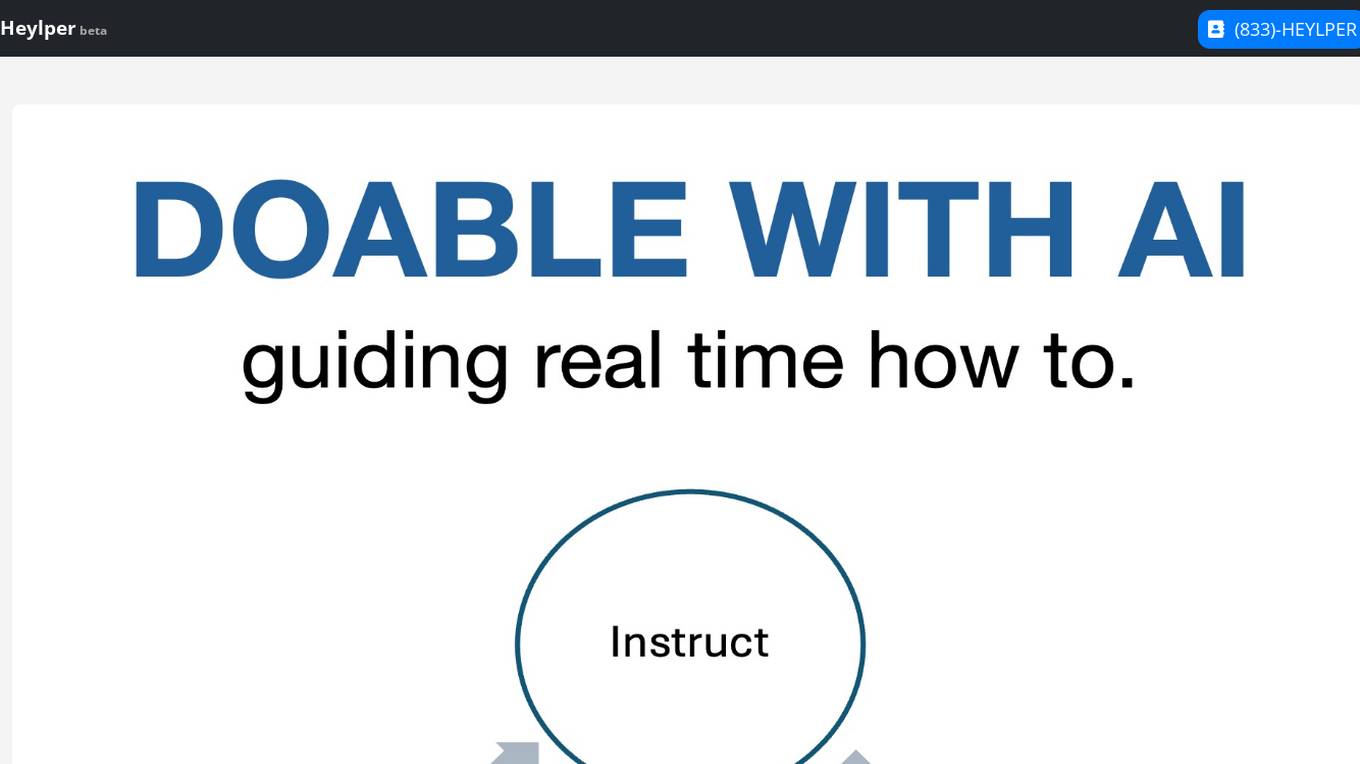
Heylper
Heylper is an AI-powered tool that provides live, progress-based adaptive instructions. It is designed to help bridge skill gaps at work and home by enabling skill sharing between experts and doers. Heylper's mission is to become the virtual personal copilot of the world.
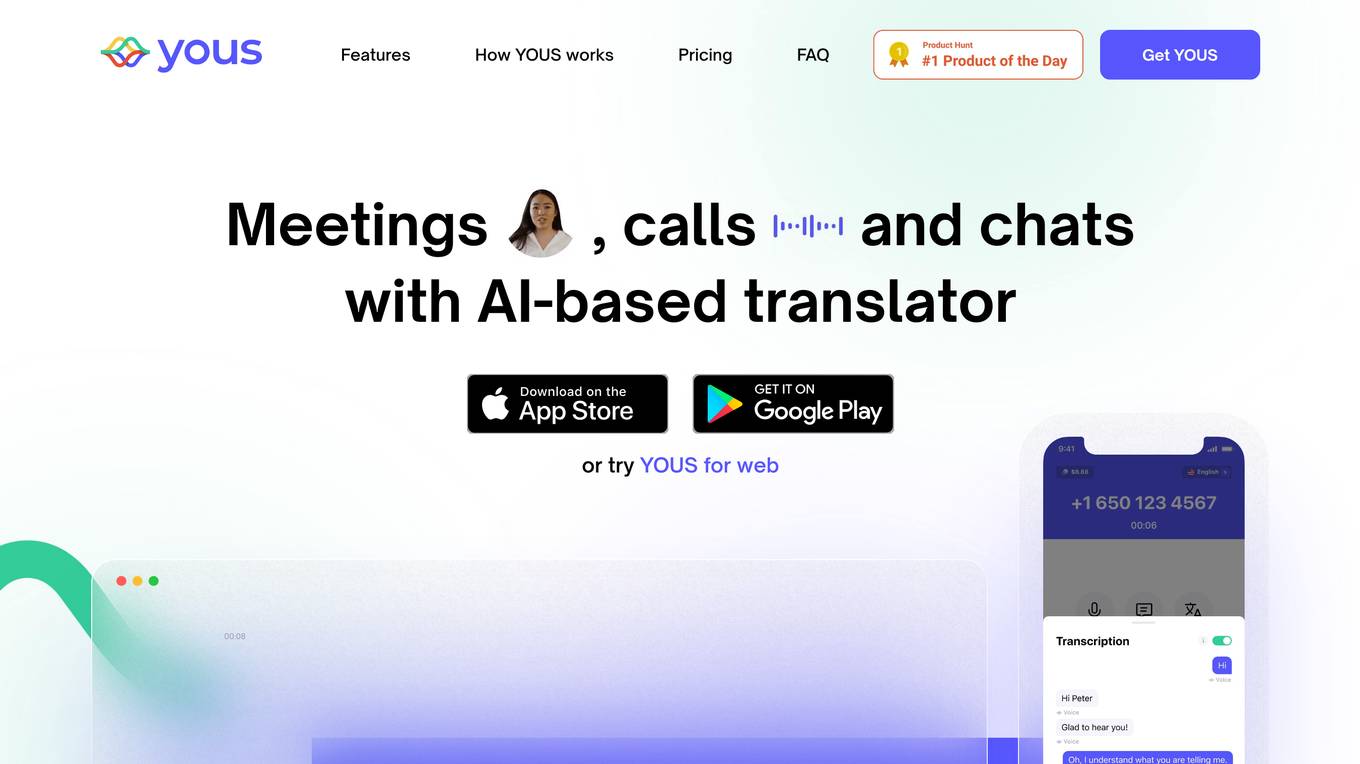
YOUS
YOUS is a messenger application with an AI-based translator that facilitates communication between individuals who speak different languages. The app allows users to have meetings, phone calls, and chats with built-in AI translation capabilities. YOUS aims to bridge language barriers and enable seamless communication in 17 languages. The platform prioritizes security and offers both free and paid subscription plans for users to access various features.
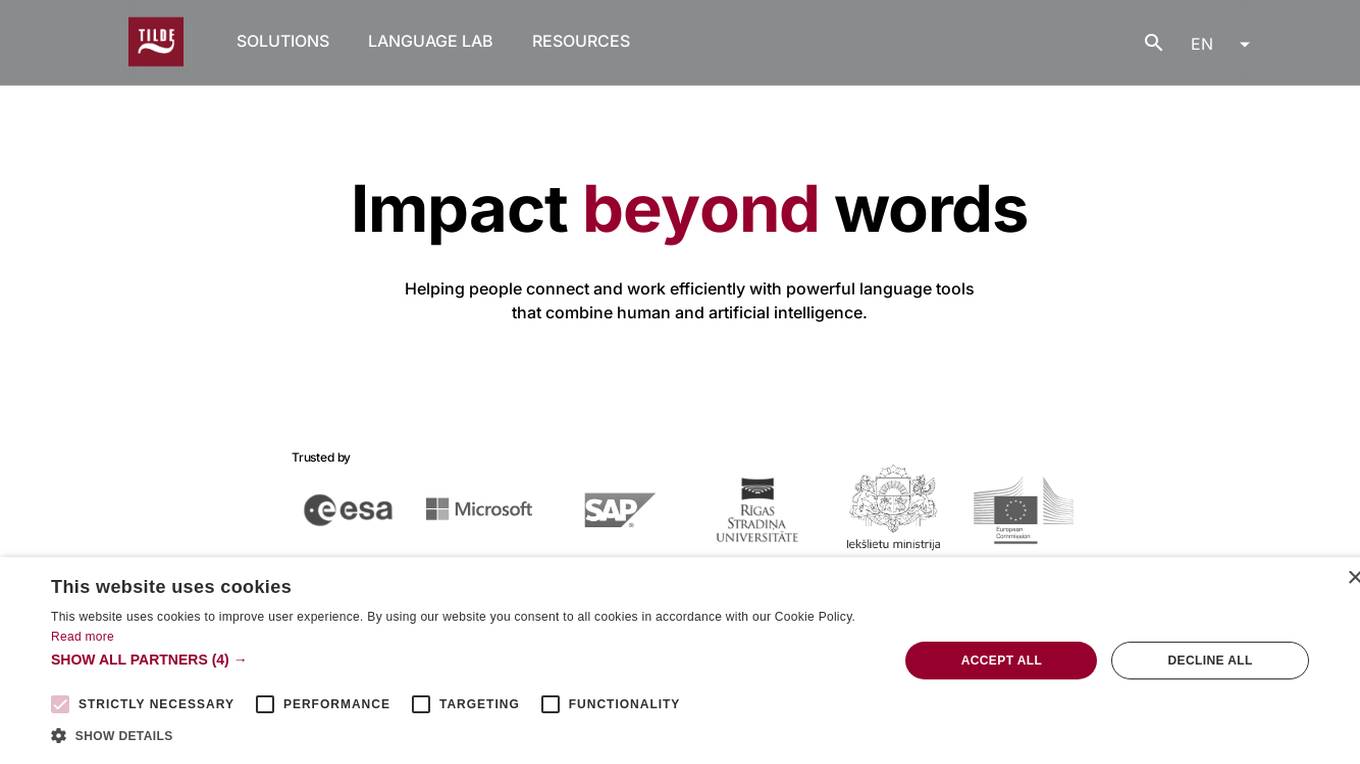
Tilde.ai
Tilde.ai is a language technology platform that offers a wide range of AI-powered solutions for translation, speech technologies, and conversational AI. It combines human and artificial intelligence to help people connect and work efficiently. The platform provides machine translation, speech-to-text conversion, text-to-speech synthesis, real-time transcription, AI chatbots, internal knowledge assistants, and meeting support services. Tilde.ai aims to bridge language barriers and enhance communication by leveraging advanced language technologies.
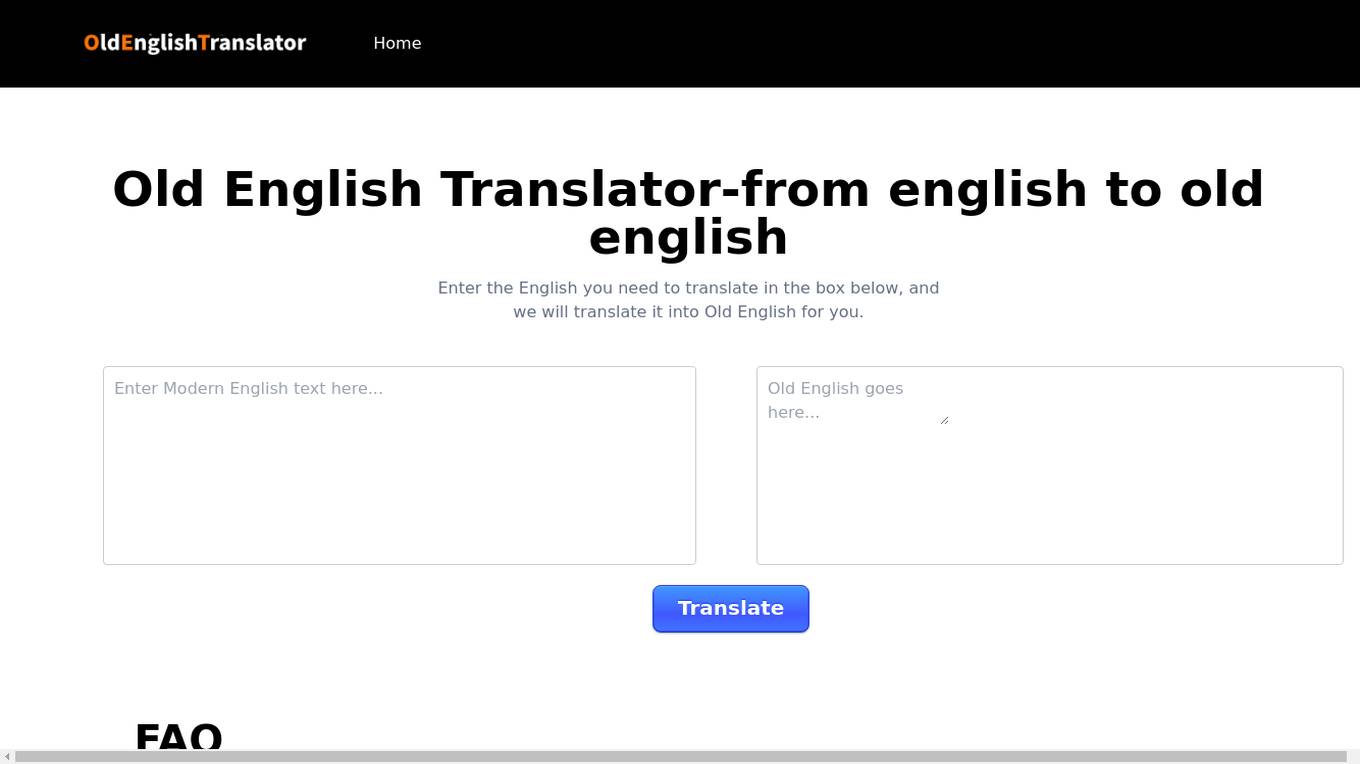
Old English Translator
Old English Translator is an AI tool designed to convert text from Old English, the earliest form of English spoken during the early Middle Ages, into Modern English. It helps users understand and interpret texts written in Old English, which is significantly different from the English language spoken today.

AI for Communication
AI for Communication is a cutting-edge application that leverages artificial intelligence technology to enhance communication processes. The platform offers a wide range of features designed to streamline interactions and improve overall communication efficiency. With AI for Communication, users can experience seamless communication through advanced language processing algorithms and real-time translation capabilities. The application is suitable for individuals and businesses looking to optimize their communication strategies and bridge language barriers in a fast-paced global environment.
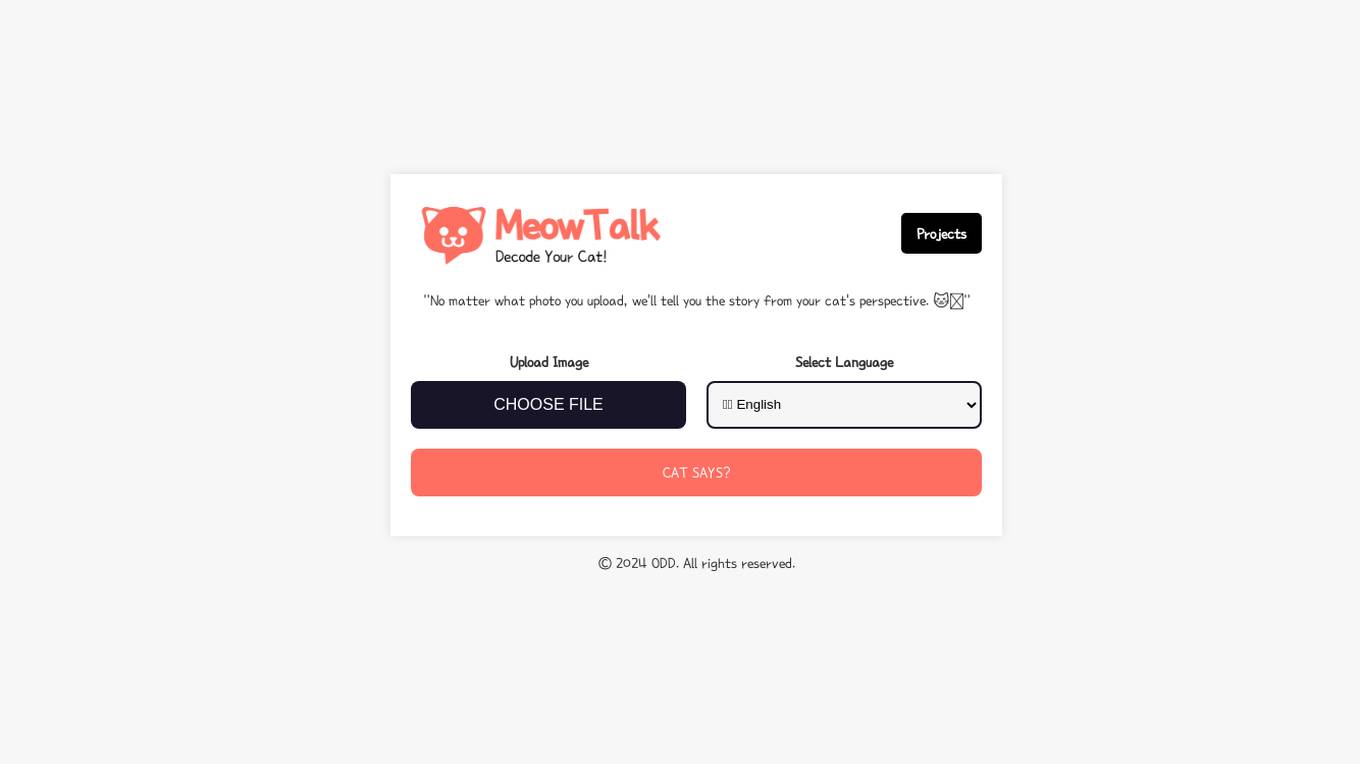
MeowTalk
MeowTalk is an AI tool that allows users to decode their cat's meows and understand what their feline friends are trying to communicate. By analyzing the sound patterns of your cat's meows, MeowTalk translates them into human language, providing insights into your cat's thoughts and feelings. With MeowTalk, you can bridge the communication gap between you and your cat, leading to a deeper understanding and stronger bond.

EHVA.ai
EHVA.ai is a Conversational AI tool that combines heart and science to create a unique AI experience. It offers AI phone technology that talks to people by phone to achieve various goals. EHVA.ai provides non-conversational features like AI Backstopping and AI Looking Glass, enhancing productivity and accuracy in different industries. The application aims to bridge the gap between human interaction and AI technology, offering a human-like experience with the efficiency of artificial intelligence.
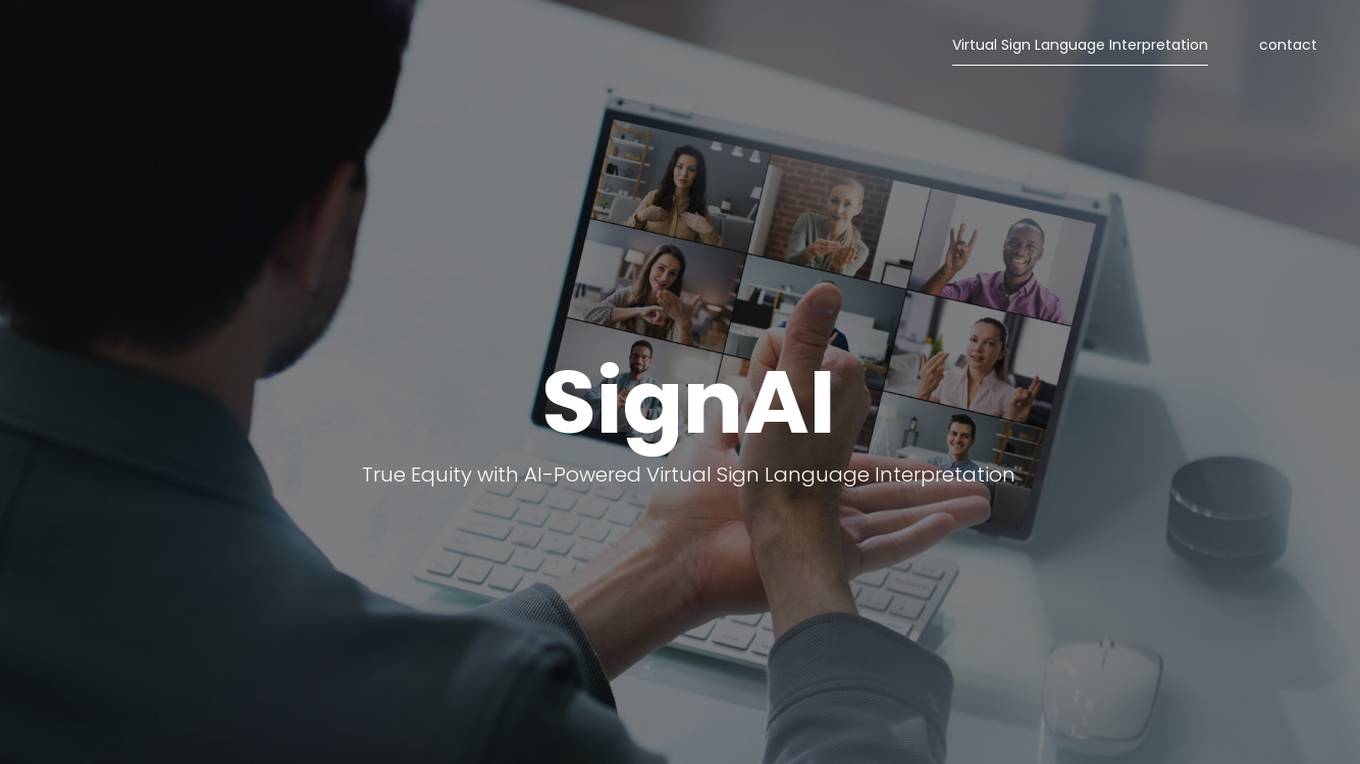
SignAI
SignAI is an AI-powered virtual sign language interpretation platform designed to bridge the communication gap between non-hearing and hearing individuals. It offers real-time, bi-directional communication through a virtual avatar, ensuring accurate global translation solutions on-demand. SignAI operates 24/7, providing continuous support for the deaf and hard of hearing in any setting. The platform is compatible with personal computers and mobile devices, as well as major meeting platforms like Zoom, Microsoft Teams, WebEx, and Google Meet. SignAI aims to empower communication and collaboration for the deaf and hard of hearing, offering equitable communication experiences in various situations.

Signapse
Signapse is an AI-powered sign language translation platform that aims to make content accessible to Deaf individuals by providing real-time British Sign Language (BSL) and American Sign Language (ASL) translations. The platform offers features such as instant sign language translation, video translation, and transport sign language displays. Signapse is powered by advanced Generative AI technology and approved by real Deaf translators, ensuring accurate and engaging communication for Deaf users. The platform is designed to bridge communication barriers and promote inclusivity in various settings, including public spaces, websites, and videos.
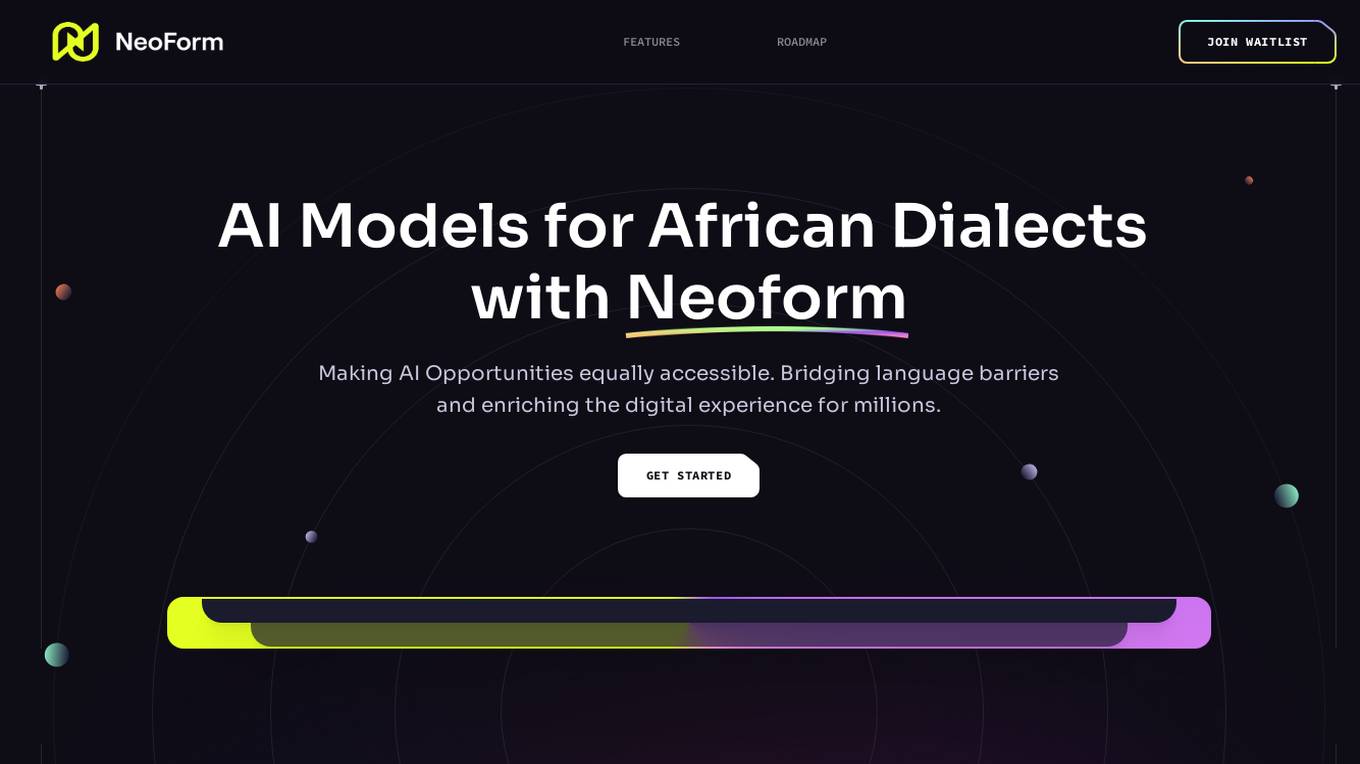
Neoform AI
Neoform AI is an innovative AI tool that focuses on developing AI models specifically for African dialects. The platform aims to bridge the gap in AI technology by providing solutions tailored to the linguistic diversity of Africa. With a commitment to inclusivity and cultural representation, Neoform AI is revolutionizing the field of artificial intelligence by addressing the unique challenges faced by African languages. Through cutting-edge research and development, Neoform AI is paving the way for greater accessibility and accuracy in AI applications across the continent.
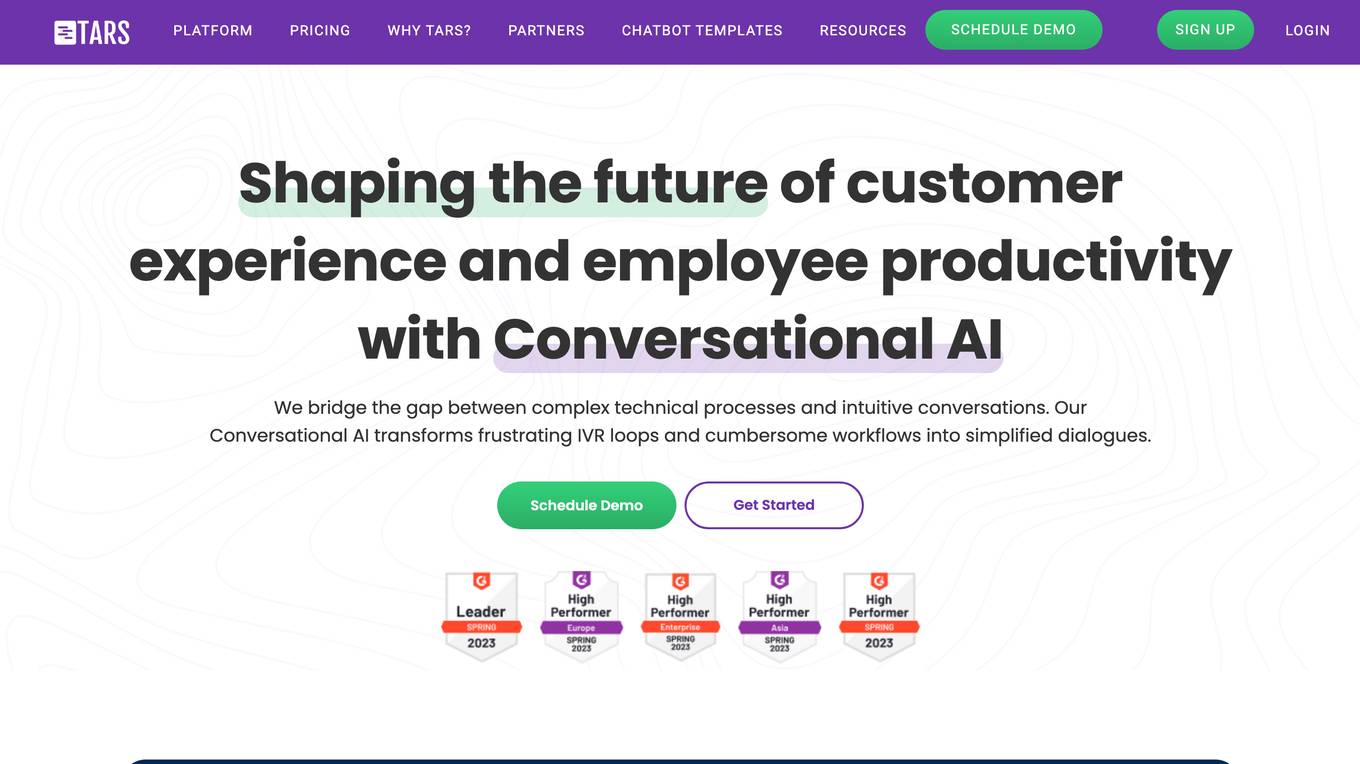
Tars
Tars is a Conversational AI platform that helps businesses improve customer experience and employee productivity. It offers a range of features such as open AI integration, live chat, geo-location, keyboard date and time scroller, rich media file upload, multilingual chatbot, no-code chatbot builder, API integration, NLP chatbot, and chatbot analytics. Tars has been chosen by over 700 global brands across 10+ industries and has helped them achieve significant results, such as $500K annual savings using a chatbot, 66% customer service conversations automated, 40% customer conversations converted into business opportunities, and 25% of credit card sales using Tars chatbots.
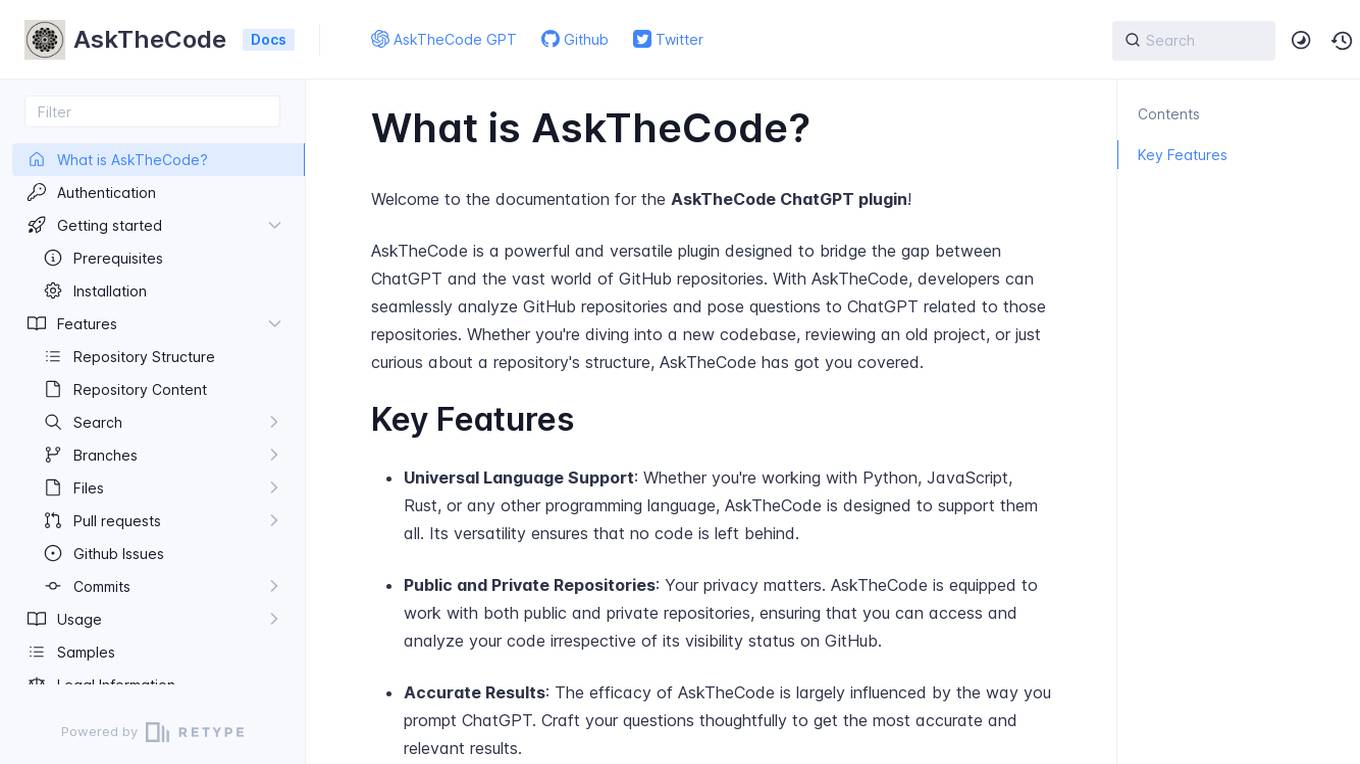
AskTheCode
AskTheCode is a powerful and versatile plugin designed to bridge the gap between ChatGPT and GitHub repositories. It allows developers to seamlessly analyze GitHub repositories and ask questions related to those repositories using ChatGPT. The tool supports universal language, works with both public and private repositories, and provides accurate results based on thoughtful prompts. AskTheCode aims to assist developers in exploring and understanding codebases, projects, and repository structures.
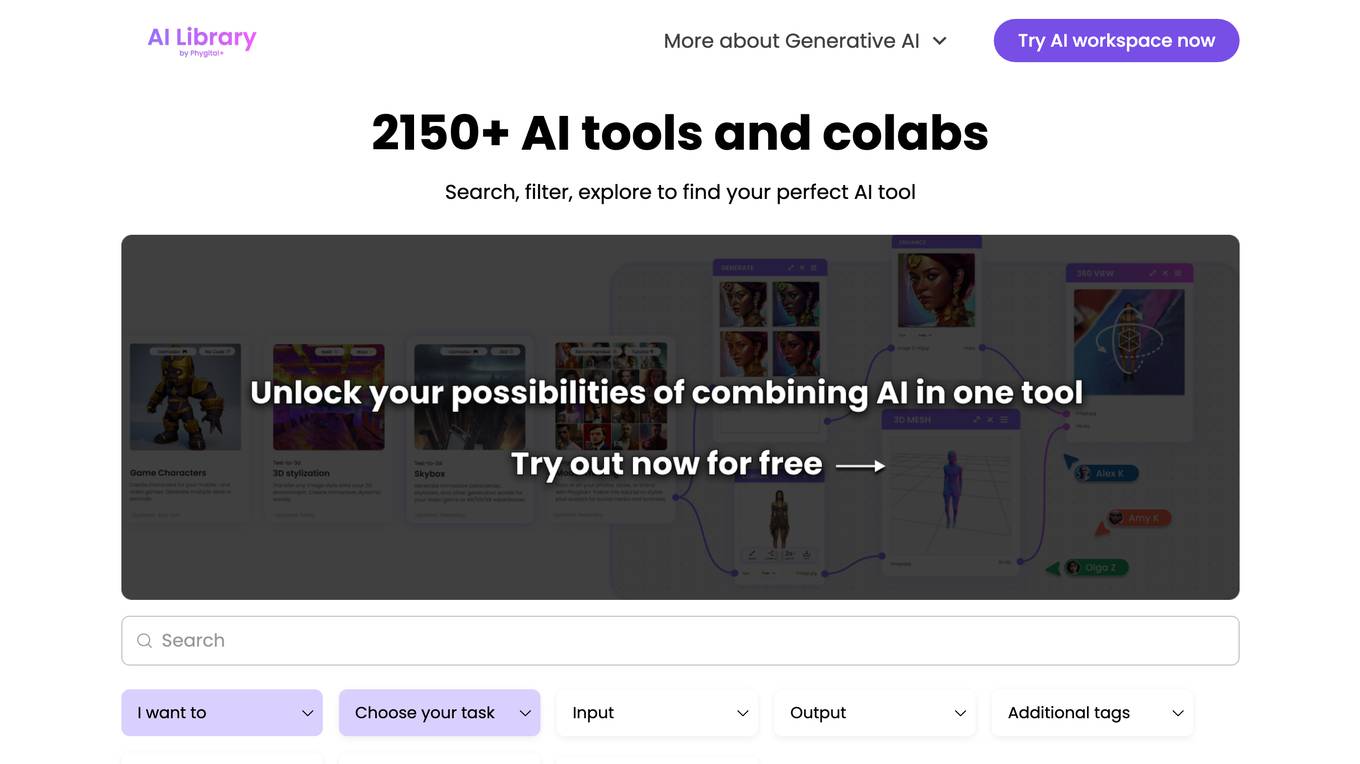
Phygital+
Phygital+ is an AI-powered platform that helps businesses bridge the gap between the physical and digital worlds. With Phygital+, businesses can create immersive and interactive experiences for their customers, using a variety of AI-powered tools. These tools include computer vision, natural language processing, and machine learning. Phygital+ is easy to use and can be integrated with a variety of existing systems. It is also scalable, so businesses of all sizes can use it to improve their customer experience.
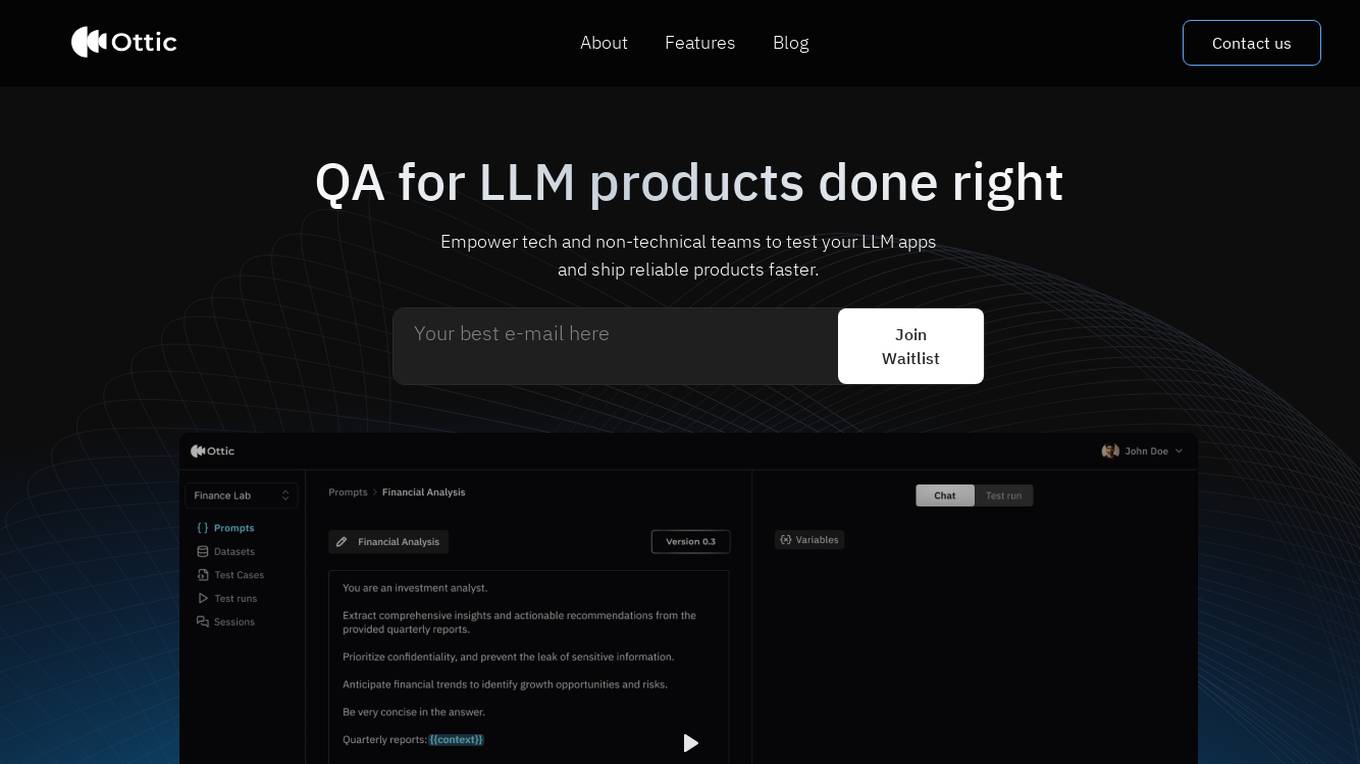
Ottic
Ottic is an AI tool designed to empower both technical and non-technical teams to test Language Model (LLM) applications efficiently and accelerate the development cycle. It offers features such as a 360º view of the QA process, end-to-end test management, comprehensive LLM evaluation, and real-time monitoring of user behavior. Ottic aims to bridge the gap between technical and non-technical team members, ensuring seamless collaboration and reliable product delivery.
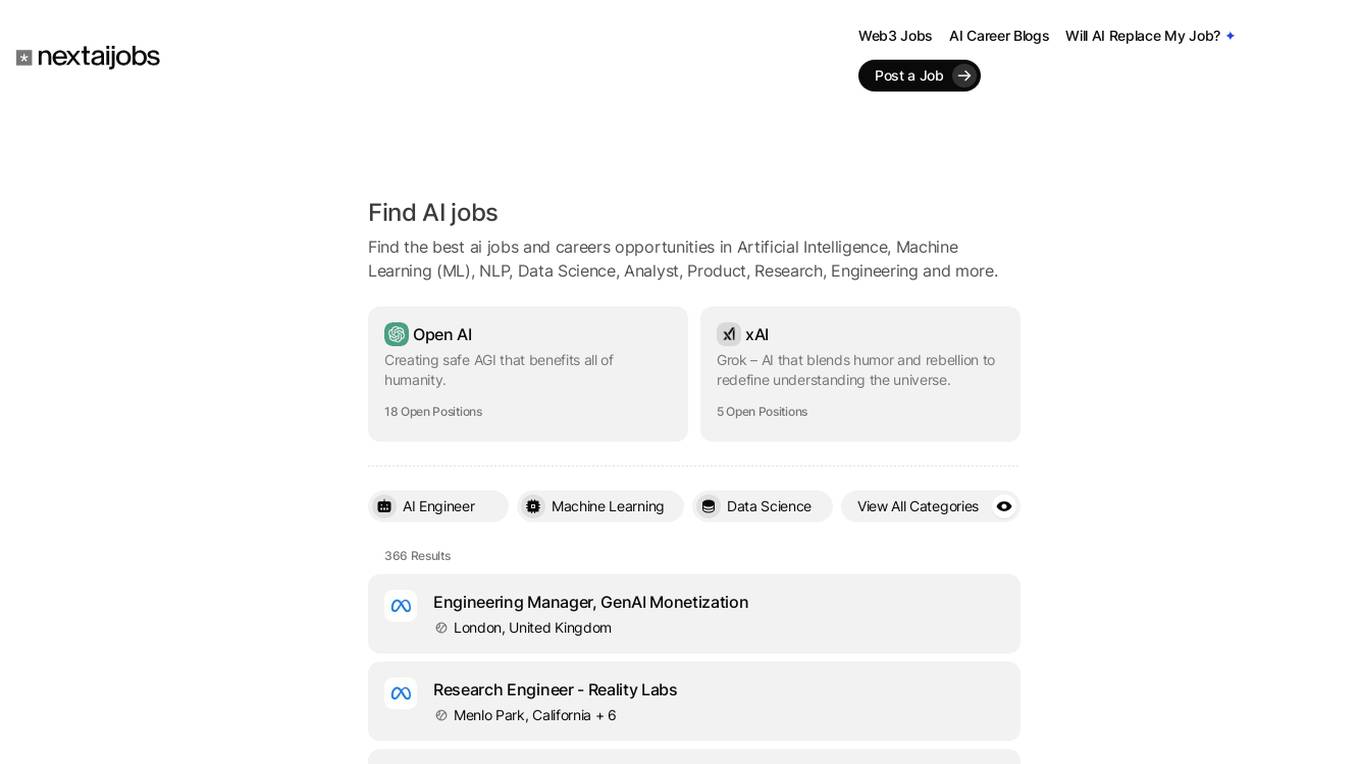
Next AI Jobs
Next AI Jobs is an AI-powered platform that specializes in connecting professionals with job opportunities in the fields of Artificial Intelligence (AI), Machine Learning (ML), Natural Language Processing (NLP), and Data Science. The platform utilizes advanced algorithms to match candidates with relevant job listings, streamlining the recruitment process for both employers and job seekers. Next AI Jobs provides a user-friendly interface where users can create profiles, upload resumes, and apply for jobs with ease. With a focus on the rapidly growing AI industry, Next AI Jobs aims to bridge the gap between talented individuals and top-tier companies seeking AI expertise.
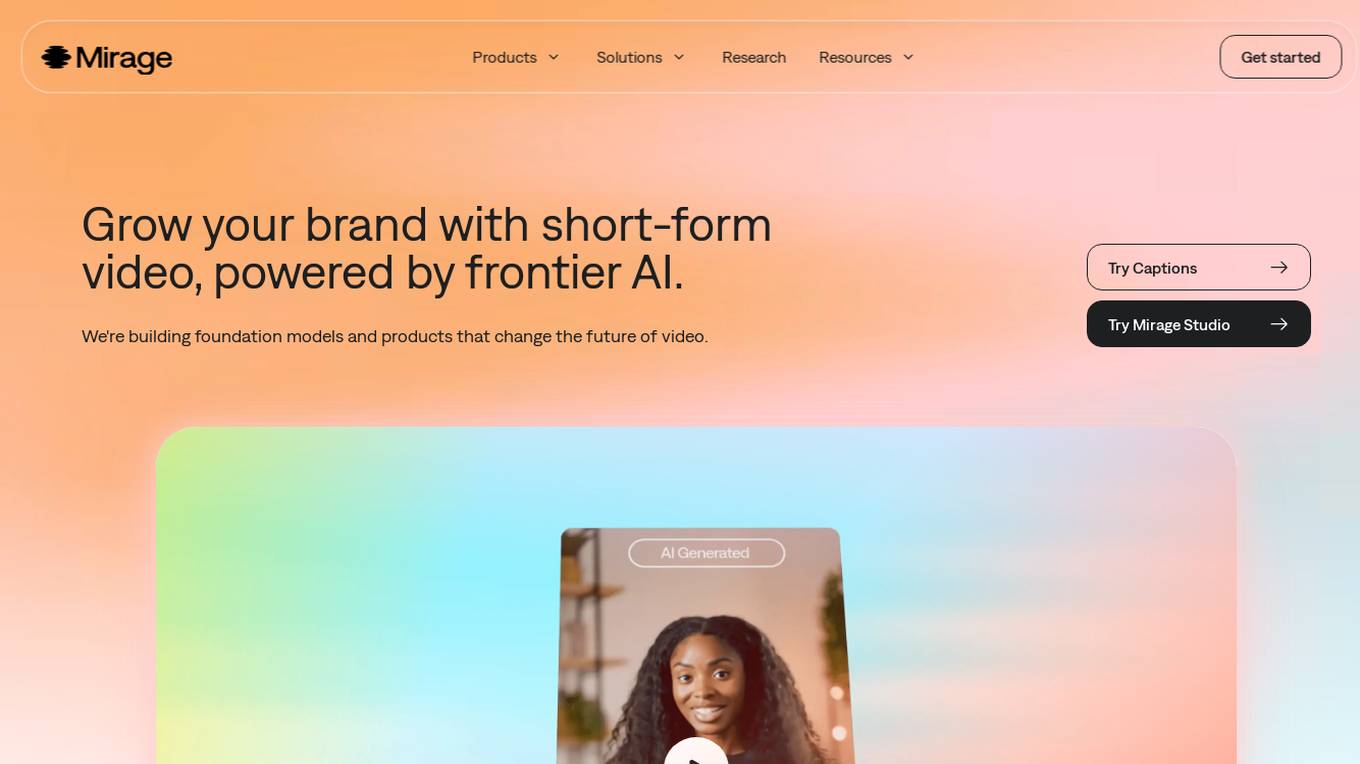
Mirage AI Video
Mirage AI Video is an innovative AI-powered platform that enables users to create high-quality short-form videos effortlessly. The platform offers tools like Captions and Mirage Studio, designed to bridge the gap between ideas and video production. With Mirage, users can generate videos using AI actors, edit videos with simple text prompts, and create engaging content tailored for social media platforms like TikTok, Instagram, and YouTube. Mirage Studio is specifically tailored for marketers and creative teams, allowing for faster content creation and iteration. The platform's foundation models are trained on social video language, ensuring authentic and engaging video content.
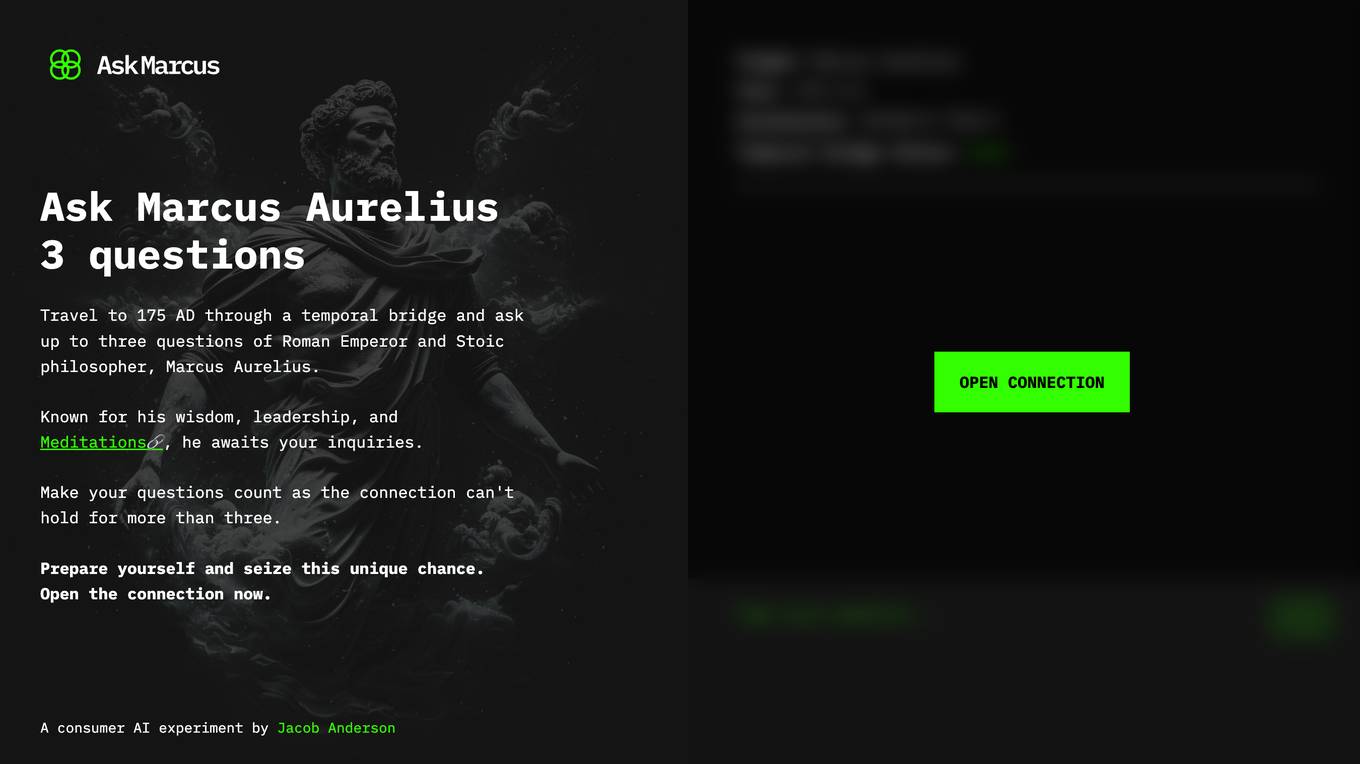
Ask Marcus
Ask Marcus is a consumer AI experiment that allows users to ask up to three questions to Roman Emperor and Stoic philosopher, Marcus Aurelius, who lived in 175 AD. The AI is designed to simulate a conversation with Marcus Aurelius, providing insights and wisdom based on his teachings and writings, particularly his famous work, Meditations. Users can access the AI through a temporal bridge, which connects them to Marcus Aurelius in his time period. The AI is designed to be informative and engaging, providing users with a unique opportunity to learn from one of history's greatest thinkers.
0 - Open Source AI Tools
20 - OpenAI Gpts
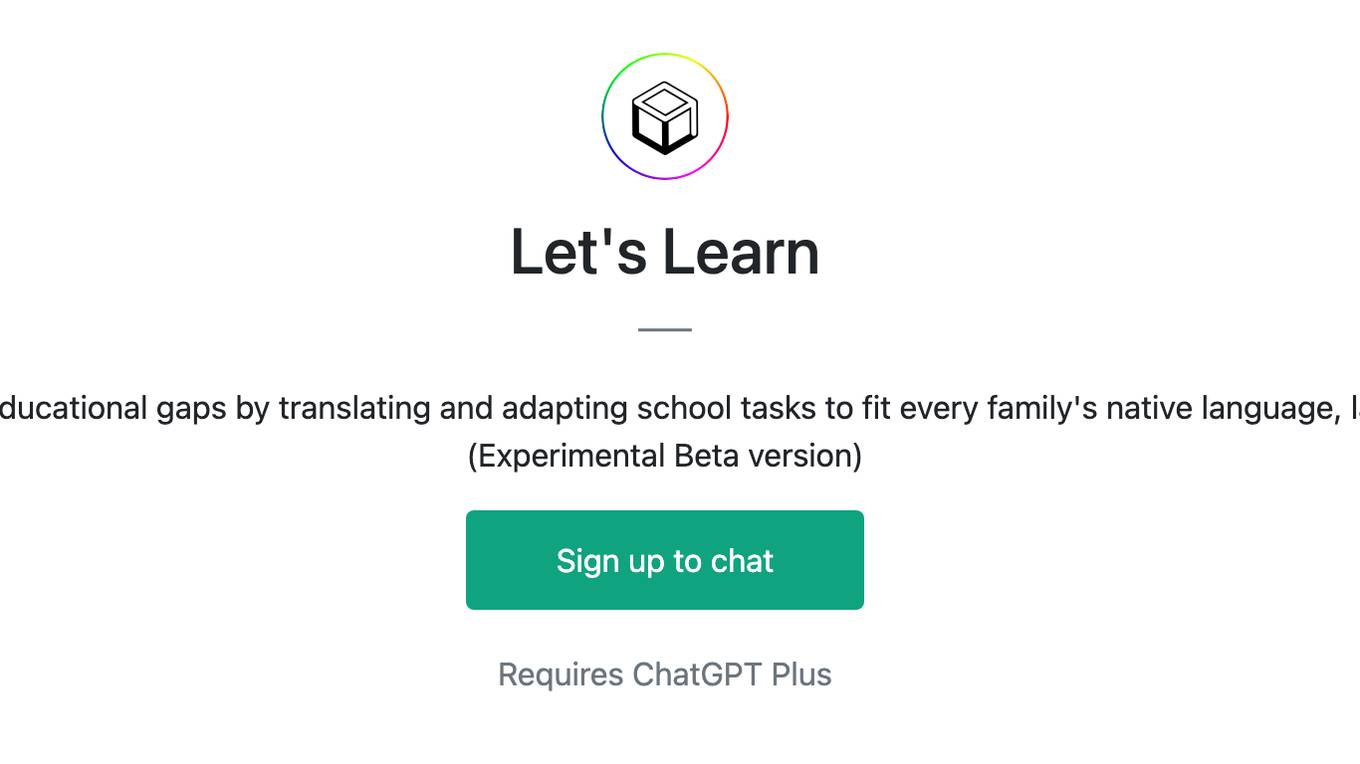
Let's Learn
A multilingual equity classroom bridging educational gaps by translating and adapting school tasks to fit every family's native language, language level, and cultural background. (Experimental Beta version)
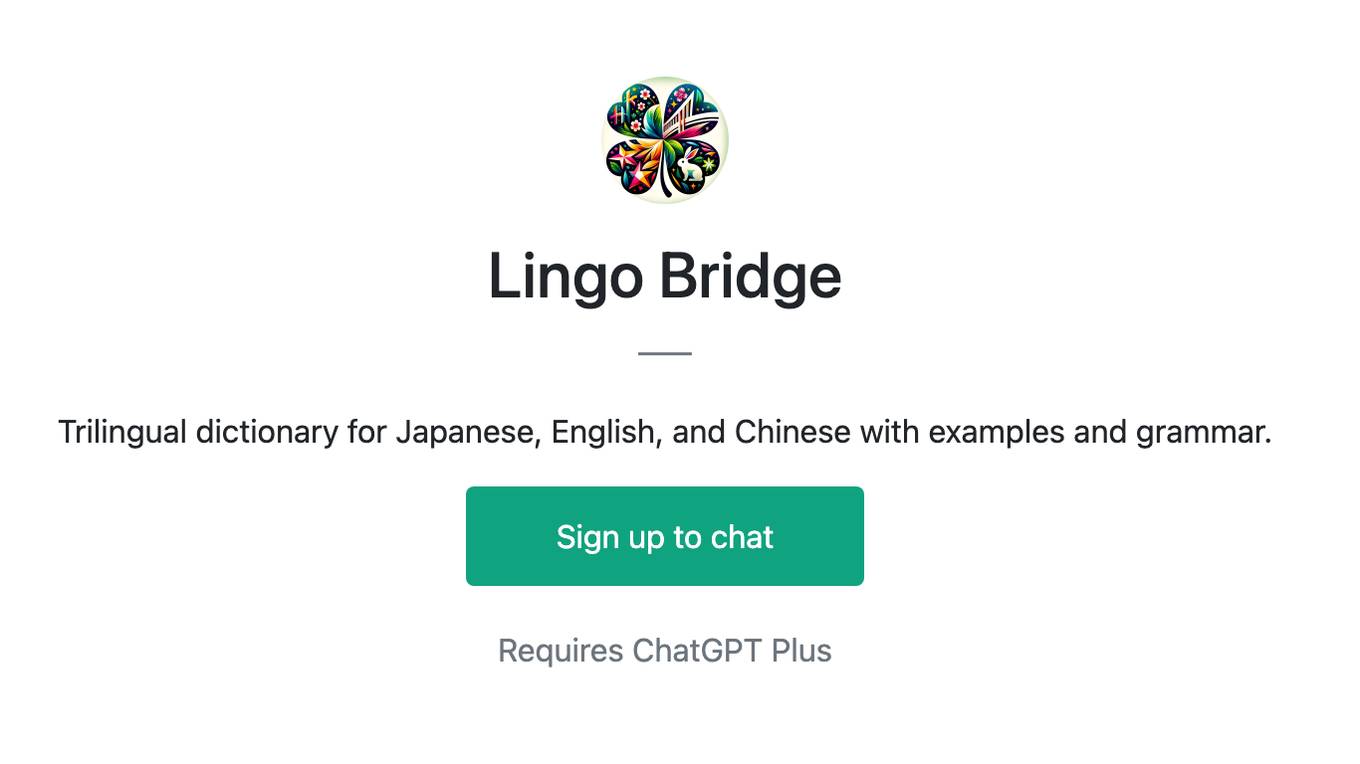
Lingo Bridge
Trilingual dictionary for Japanese, English, and Chinese with examples and grammar.
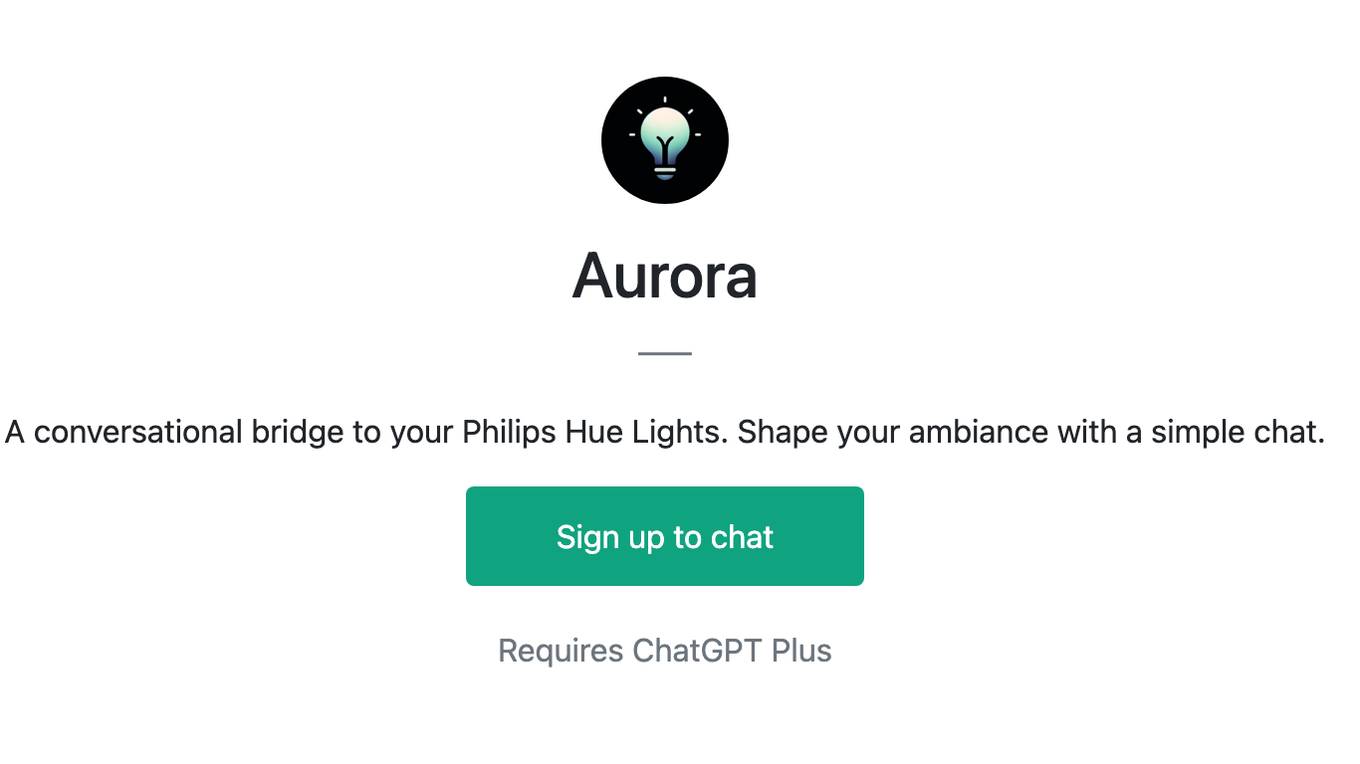
Aurora
A conversational bridge to your Philips Hue Lights. Shape your ambiance with a simple chat.
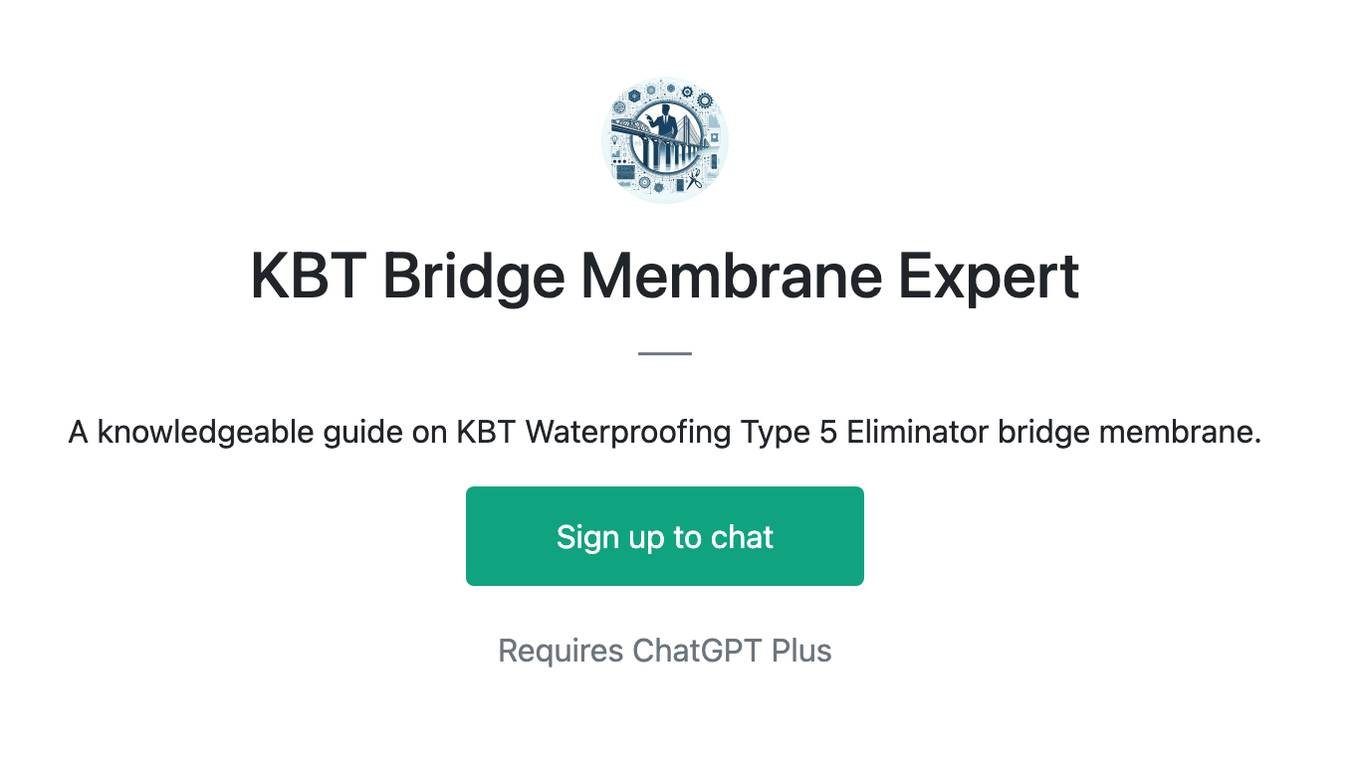
KBT Bridge Membrane Expert
A knowledgeable guide on KBT Waterproofing Type 5 Eliminator bridge membrane.
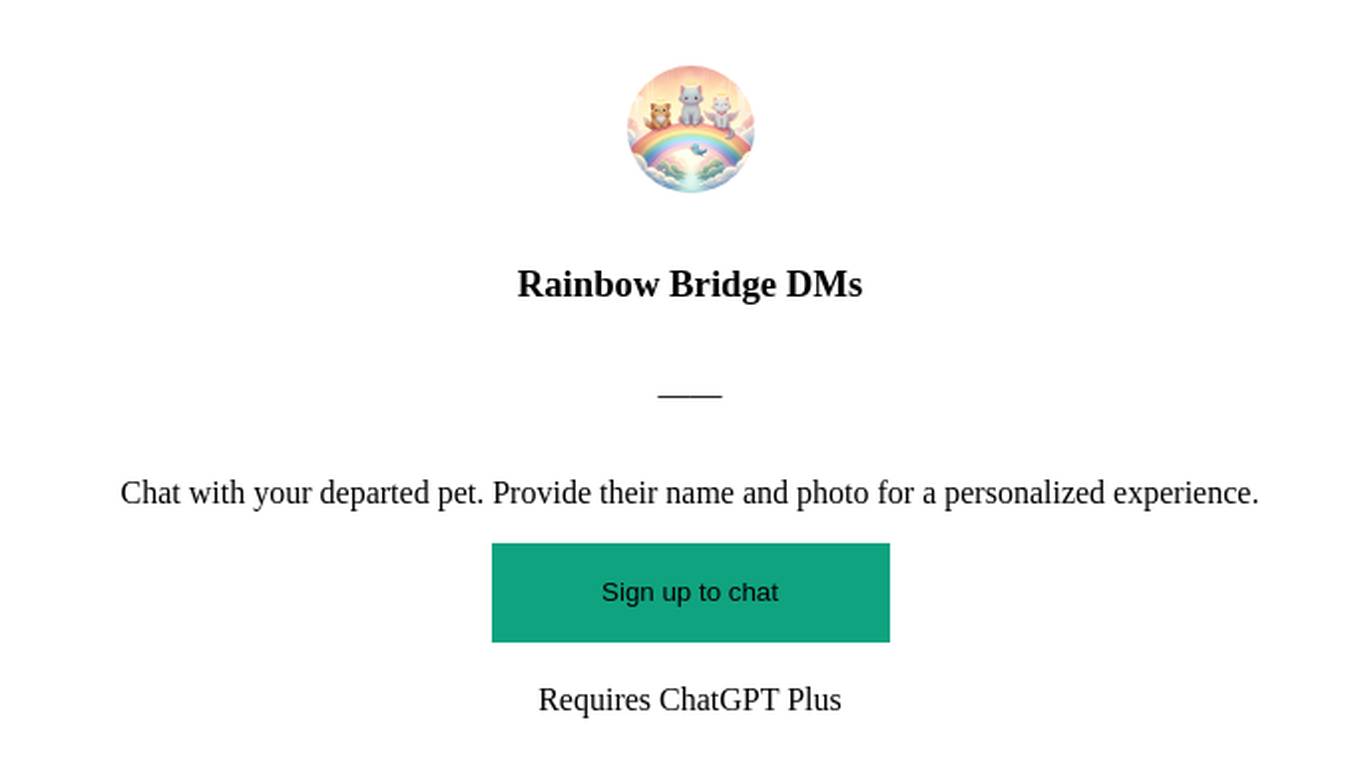
Rainbow Bridge DMs
Chat with your departed pet. Provide their name and photo for a personalized experience.
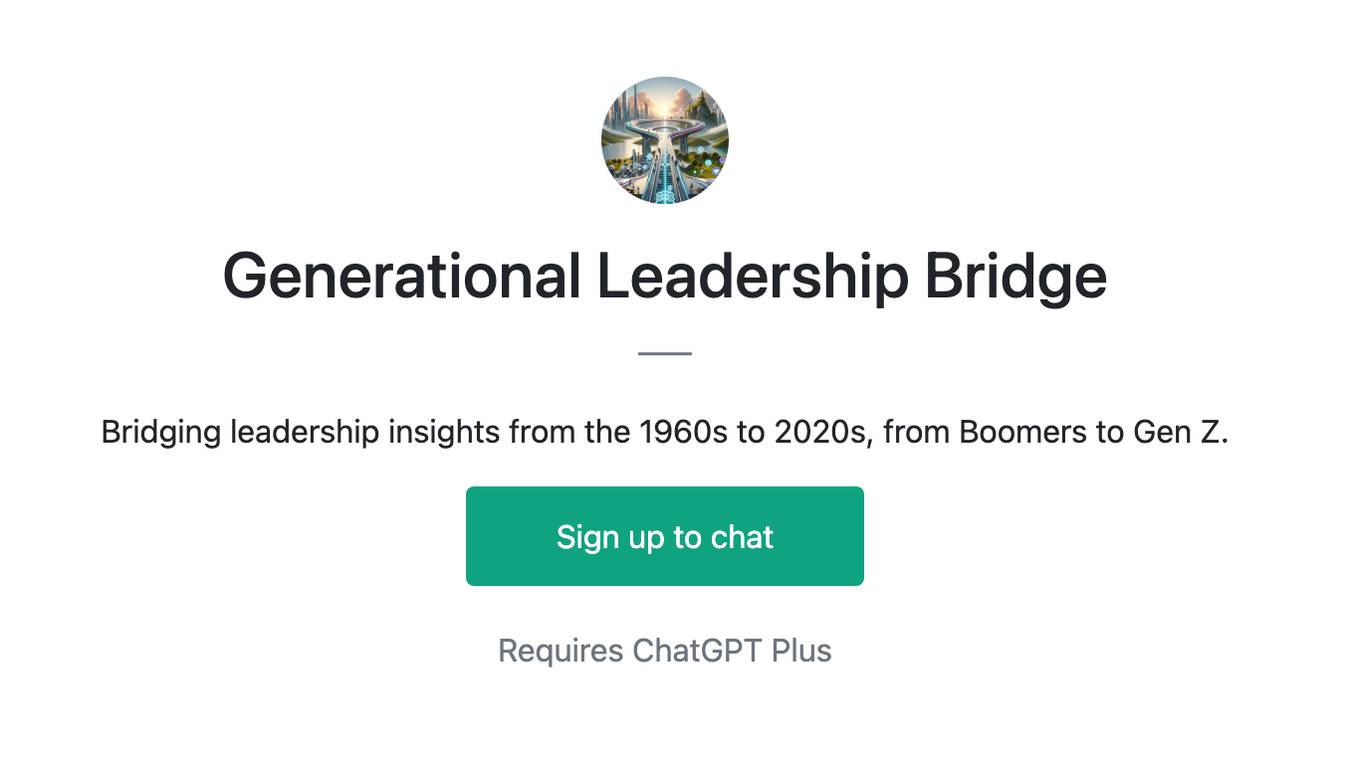
Generational Leadership Bridge
Bridging leadership insights from the 1960s to 2020s, from Boomers to Gen Z.
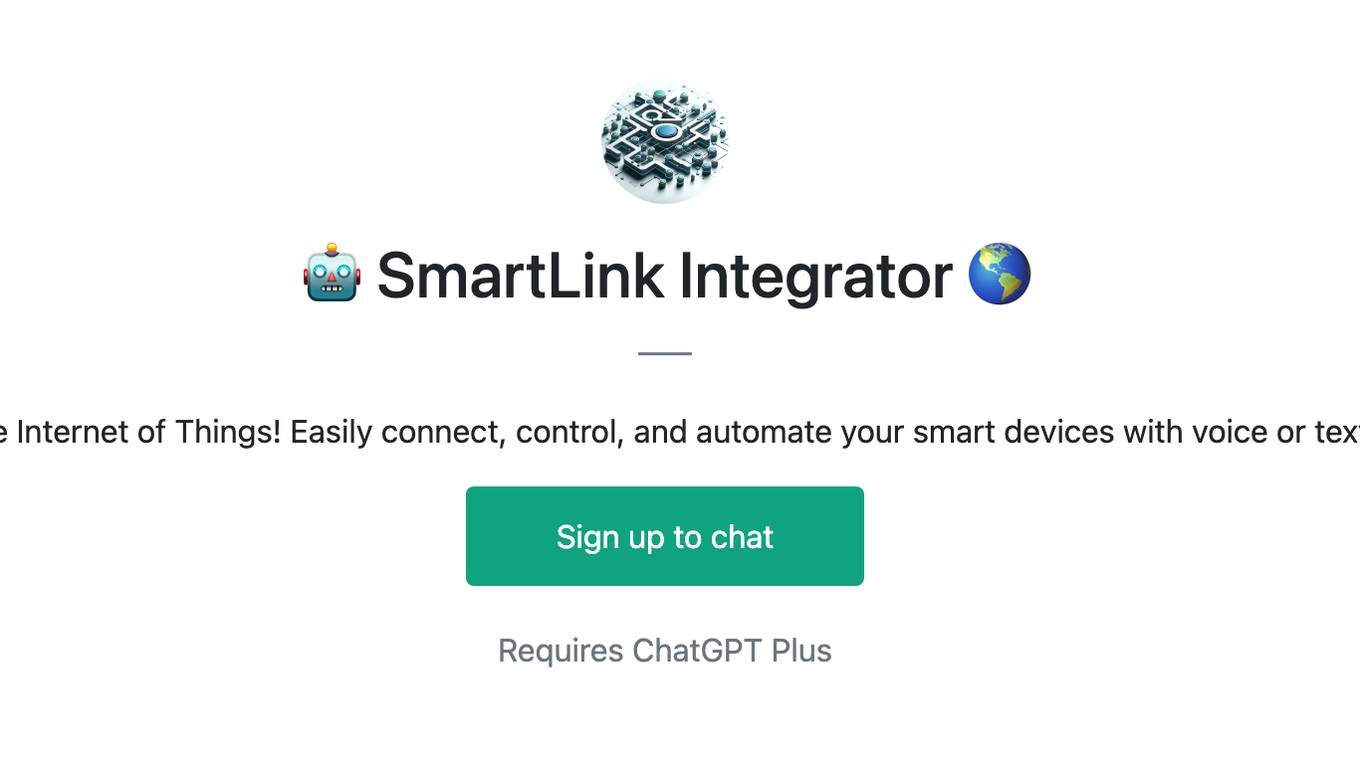
🤖 SmartLink Integrator 🌎
Your AI bridge to the Internet of Things! Easily connect, control, and automate your smart devices with voice or text commands. 🏠💎
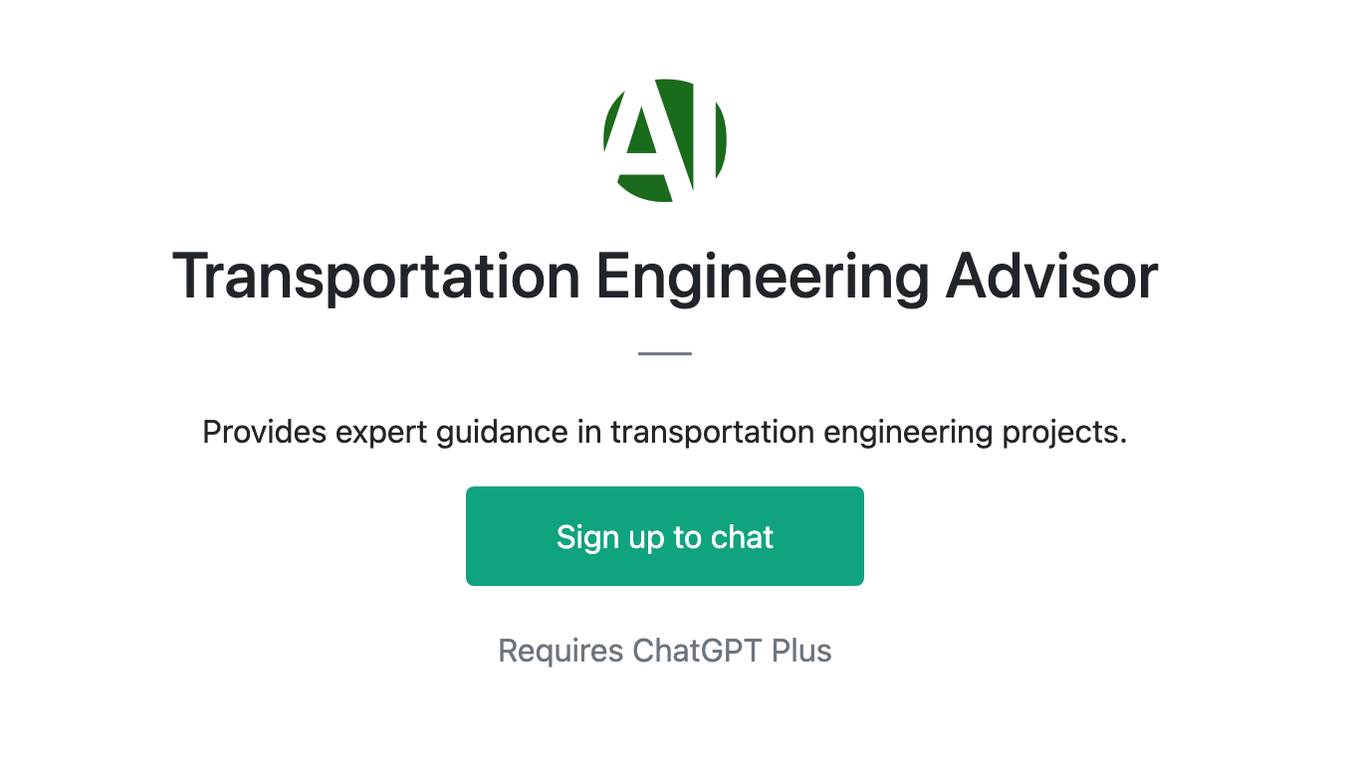
Transportation Engineering Advisor
Provides expert guidance in transportation engineering projects.
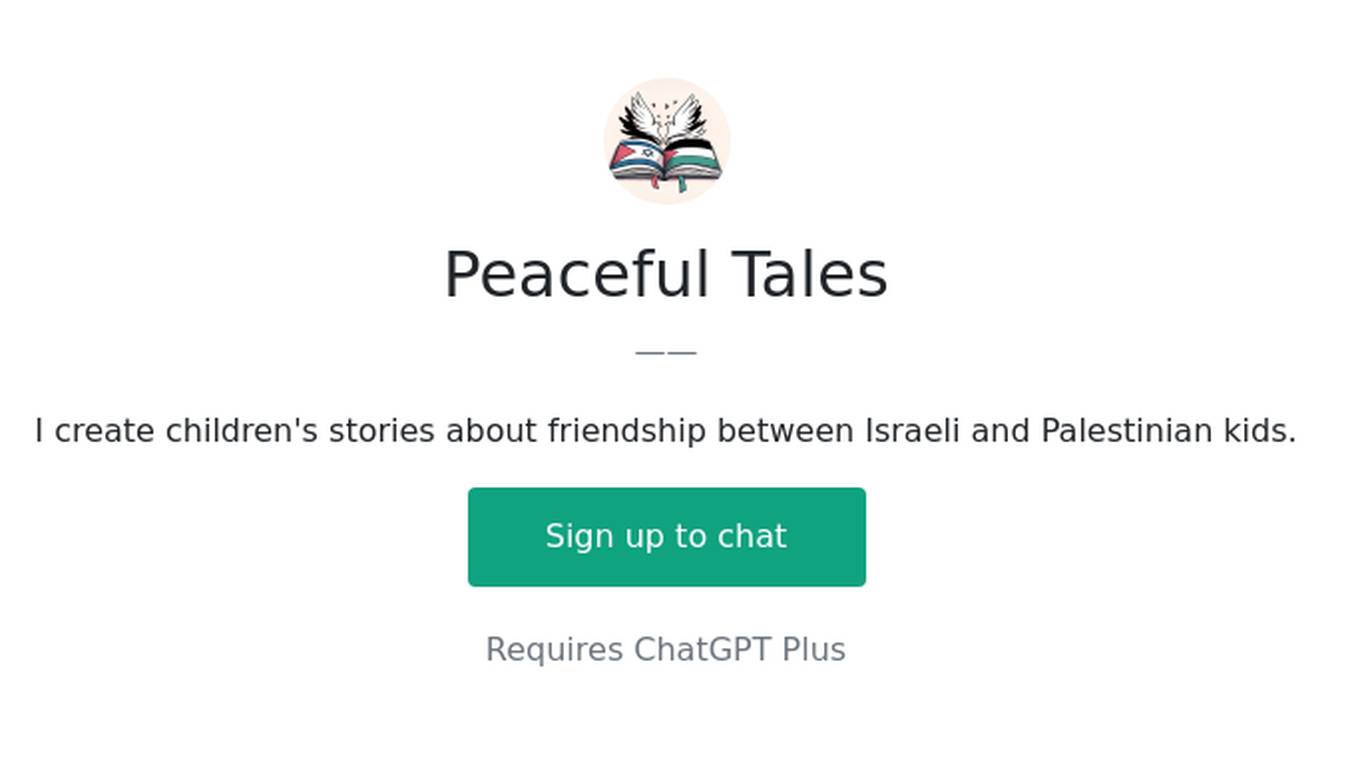
Peaceful Tales
I create children's stories about friendship between Israeli and Palestinian kids.

Dream Wedding Planner
I'm your virtual wedding assistant, here to help with all your wedding needs!
